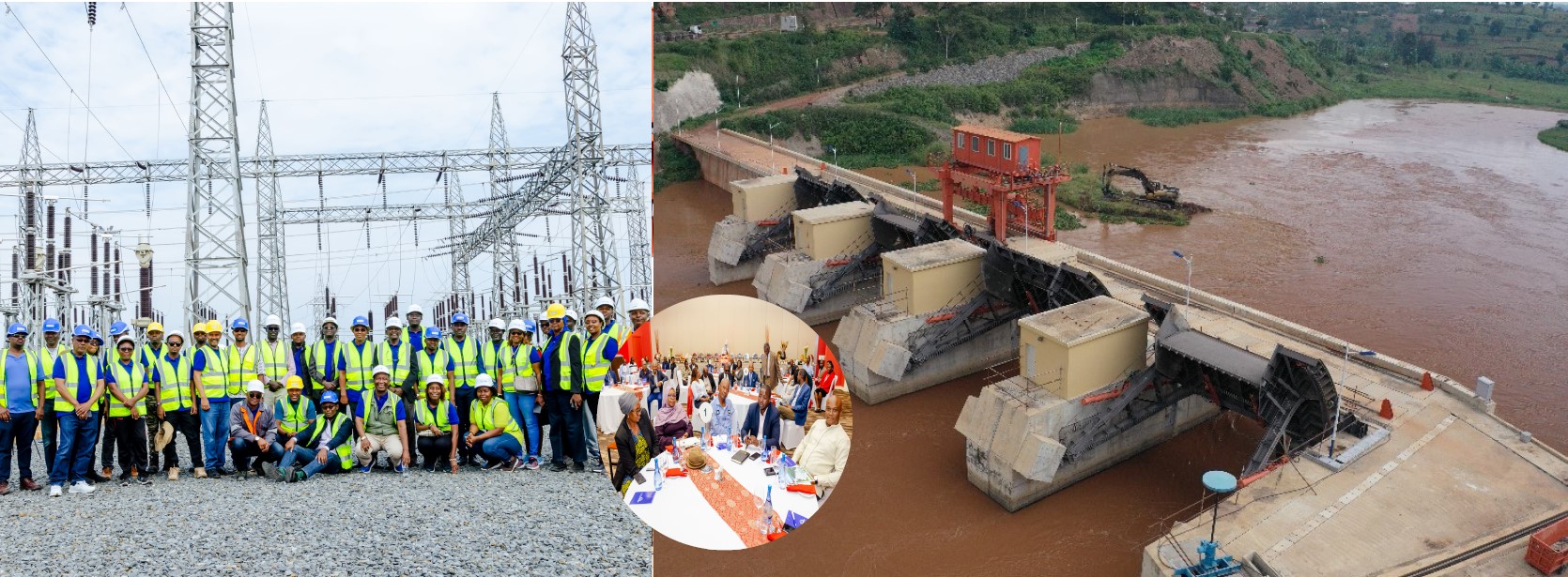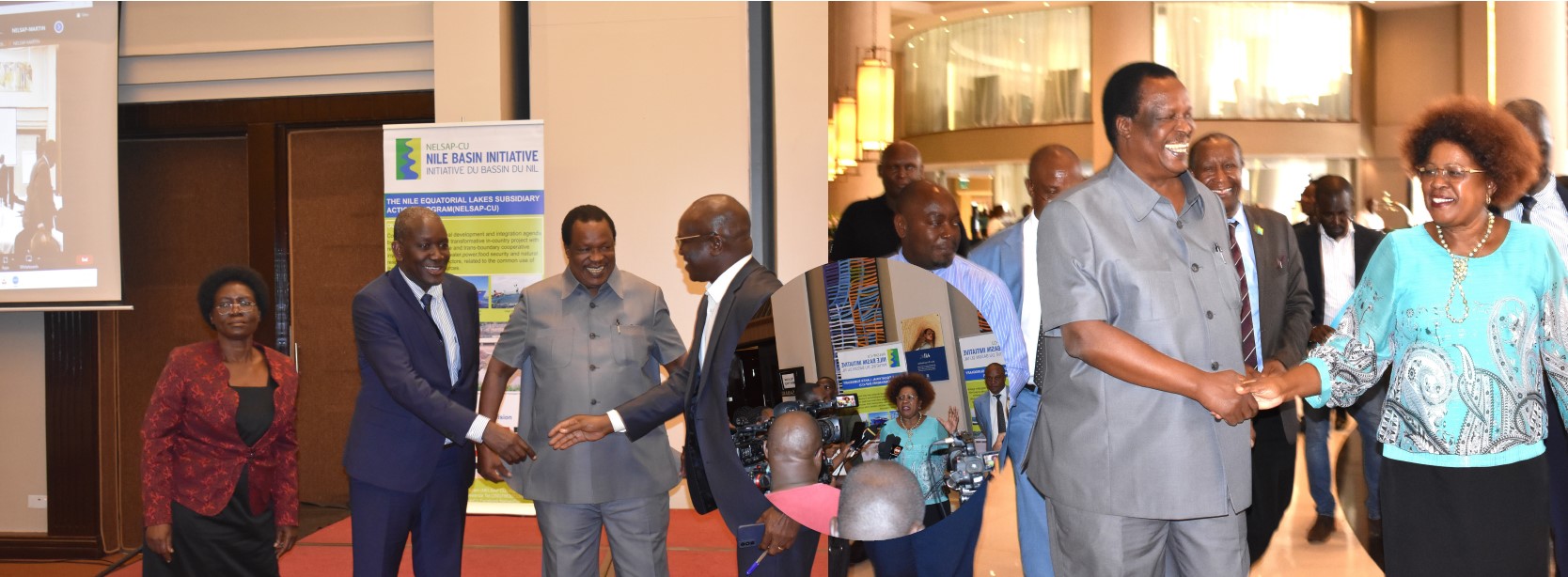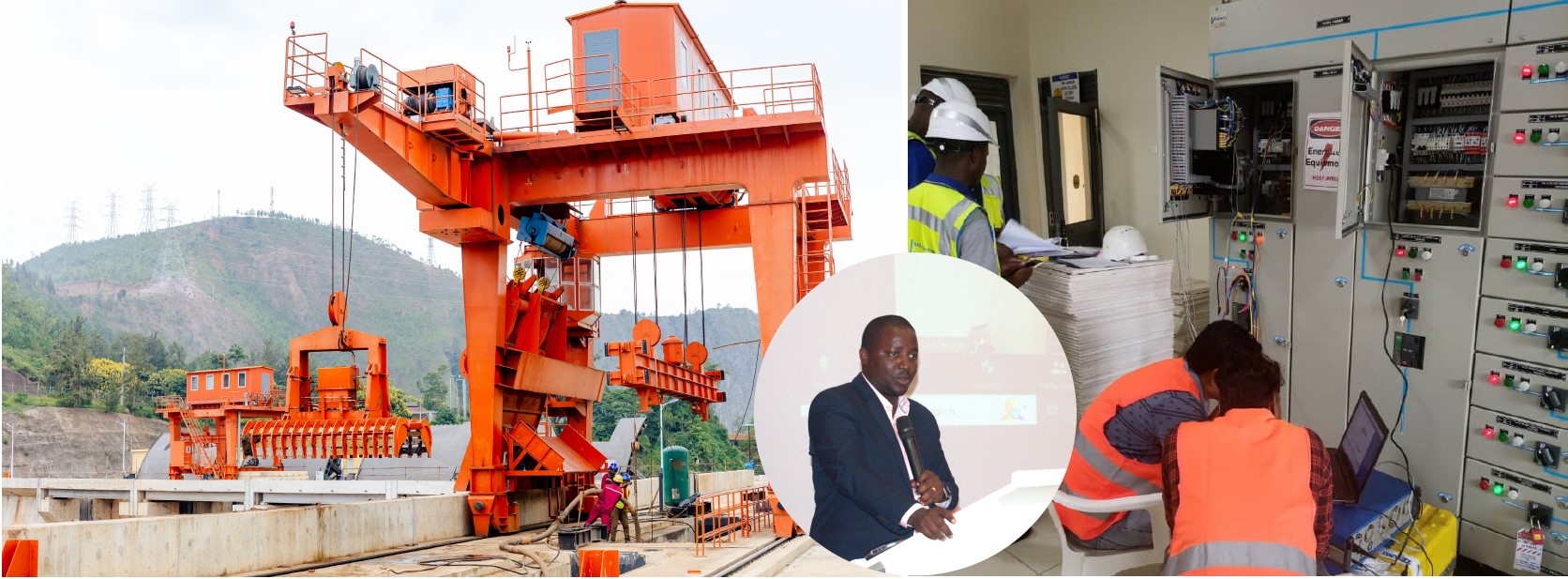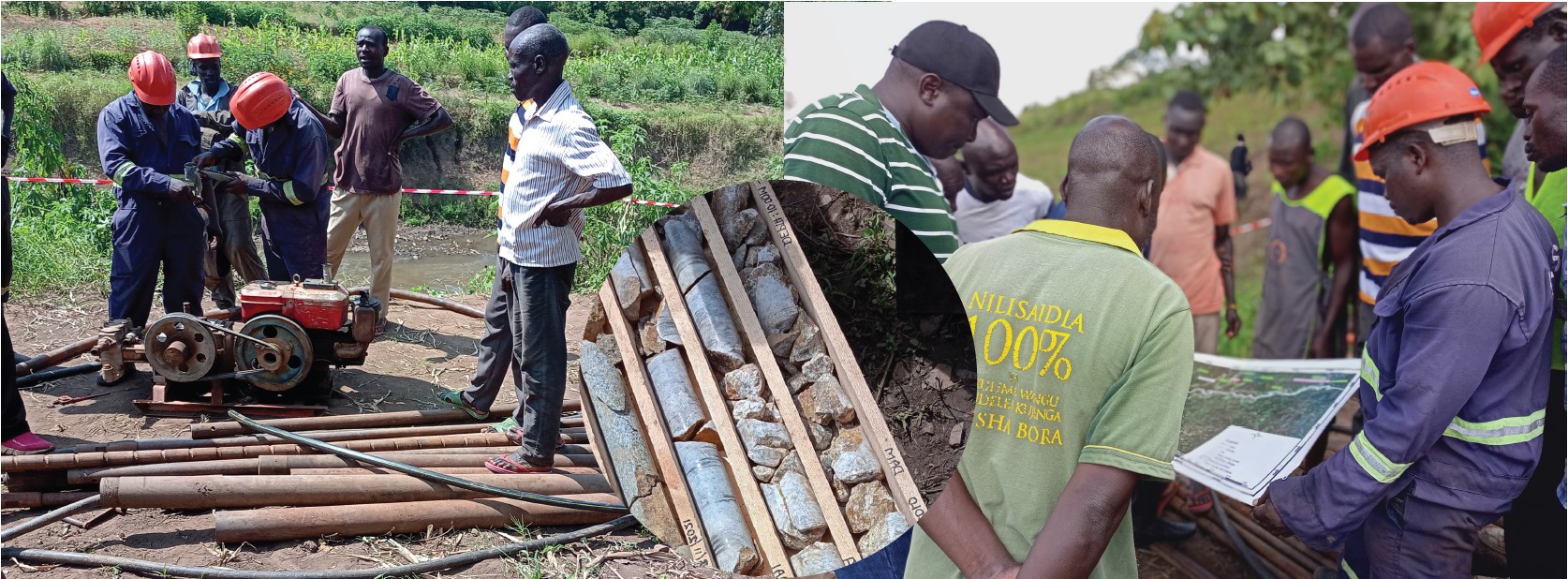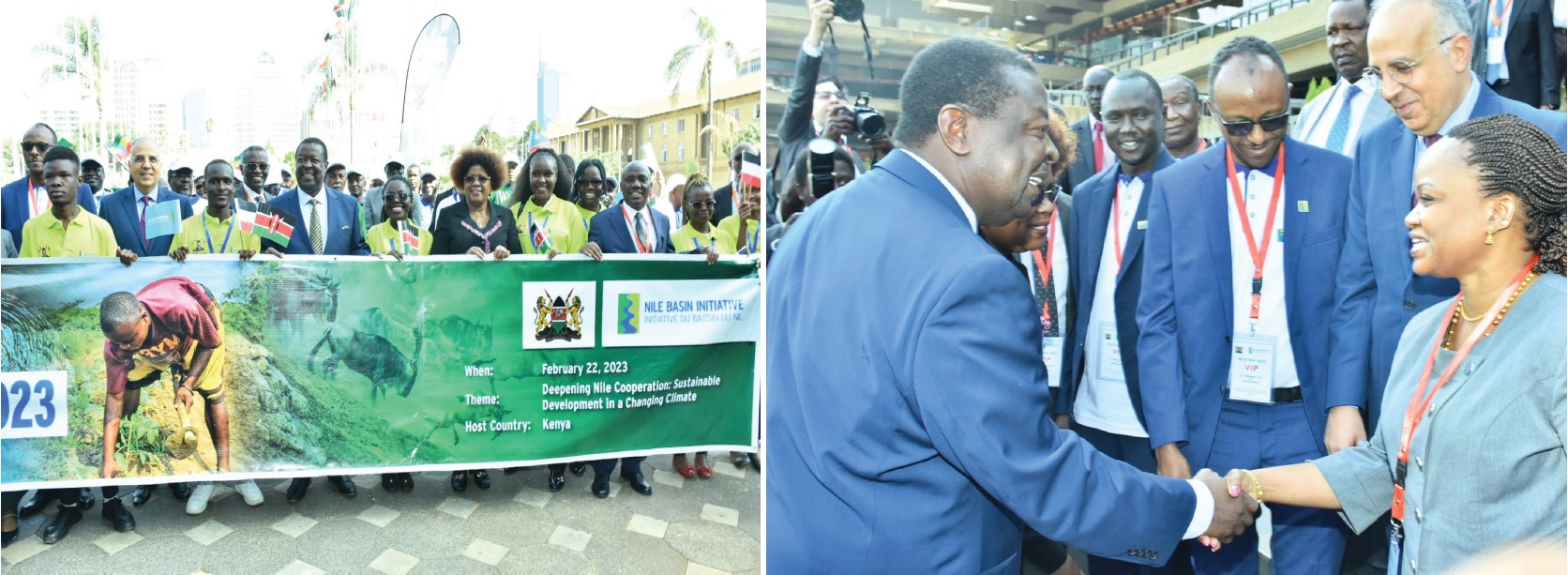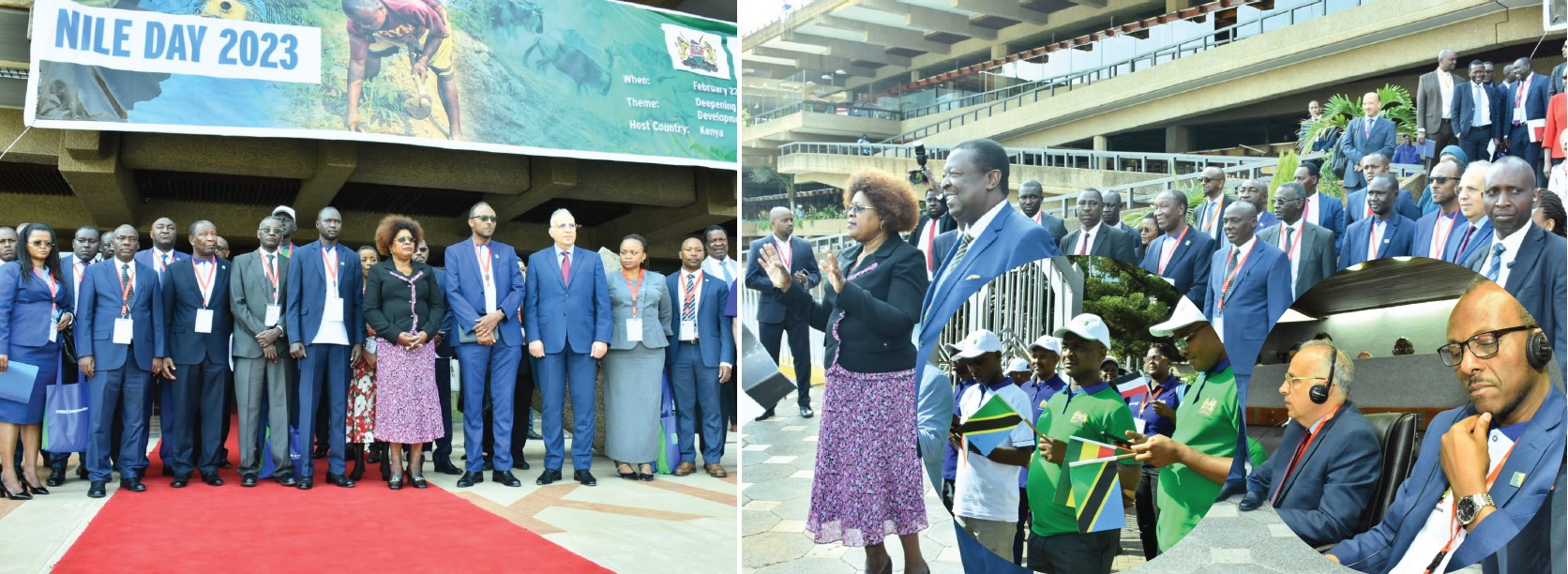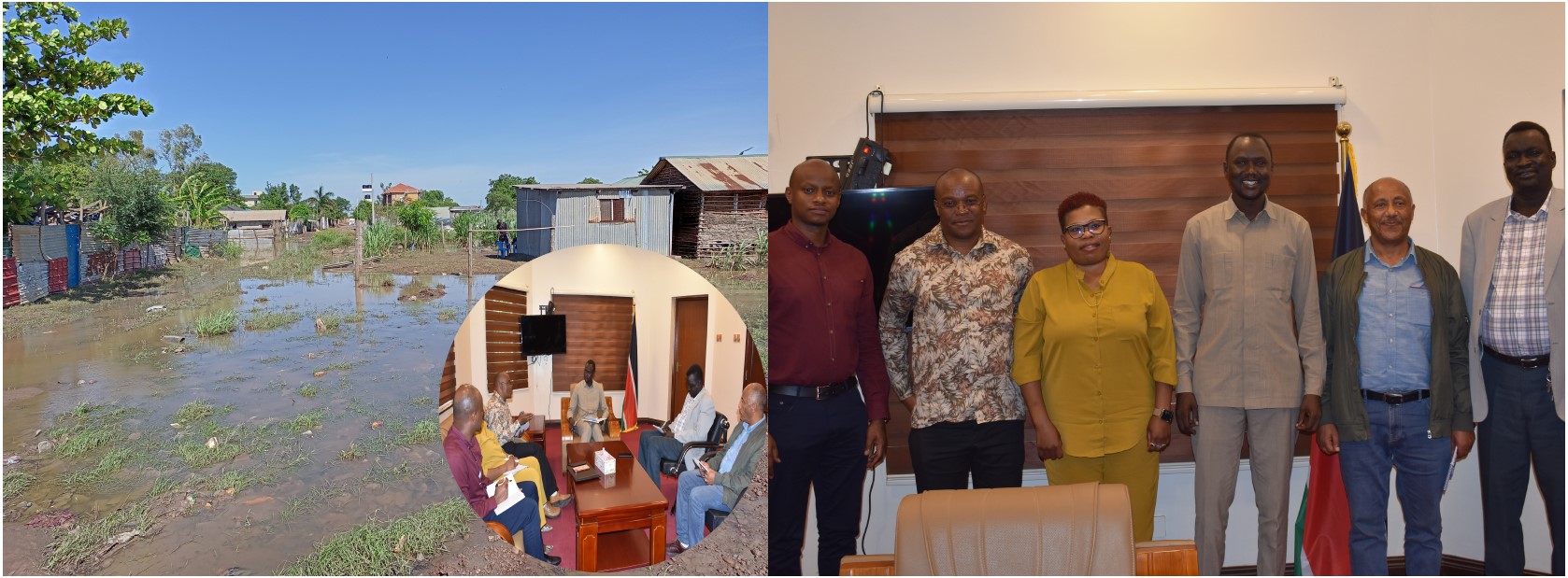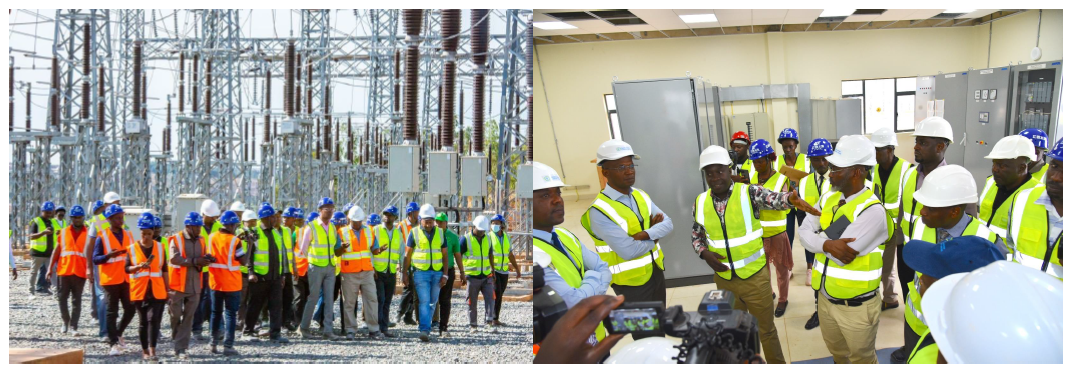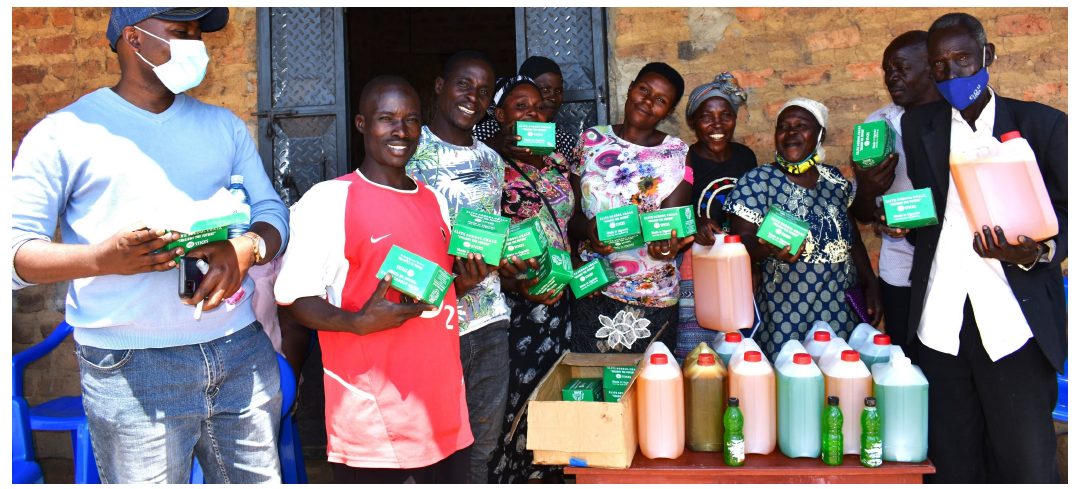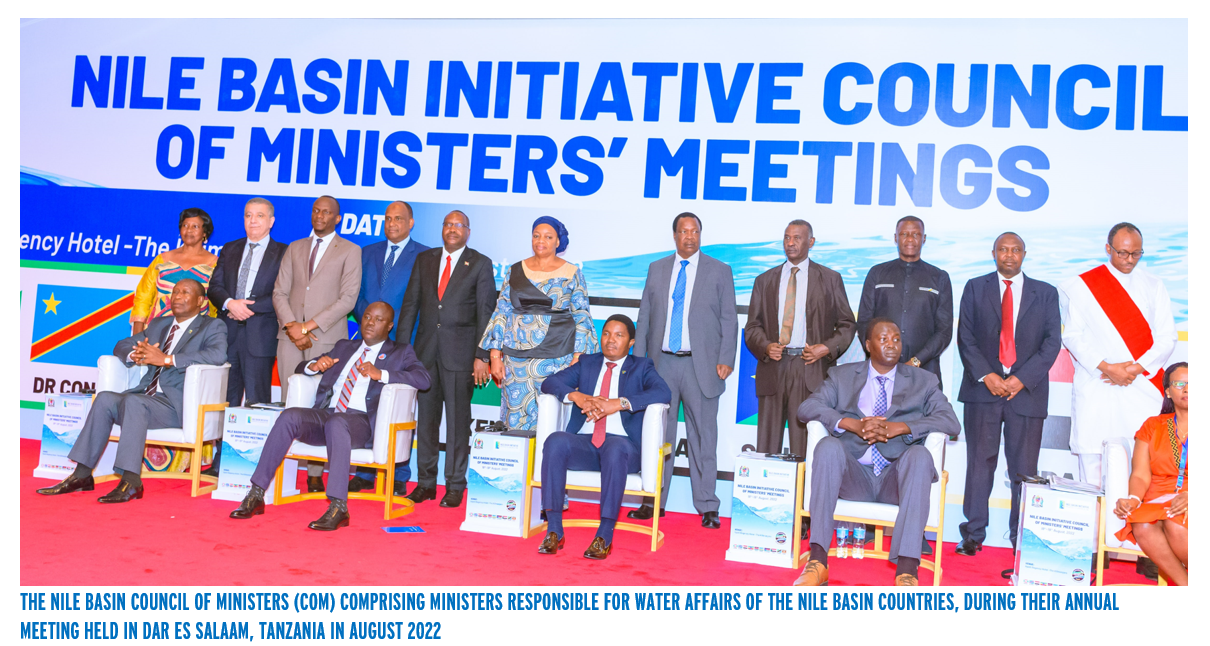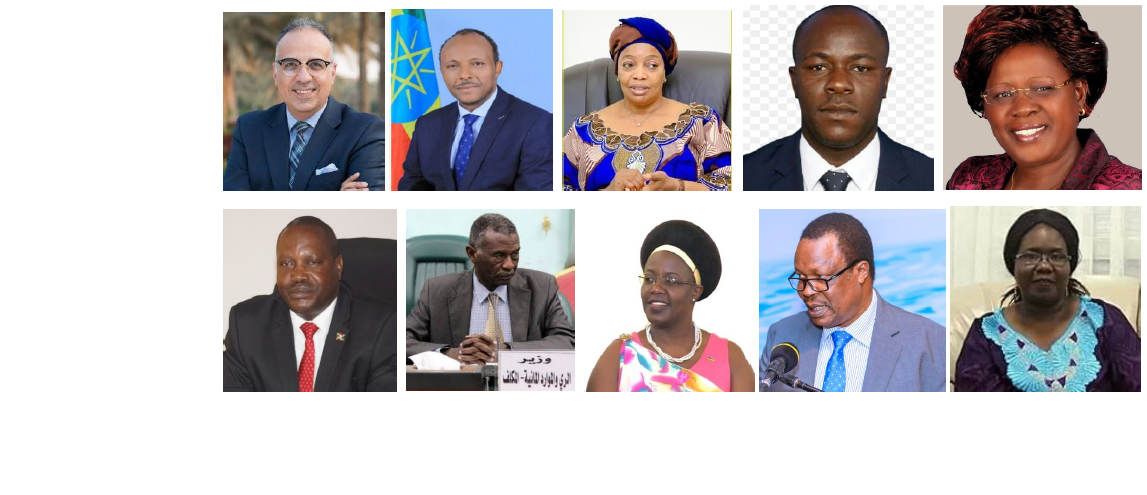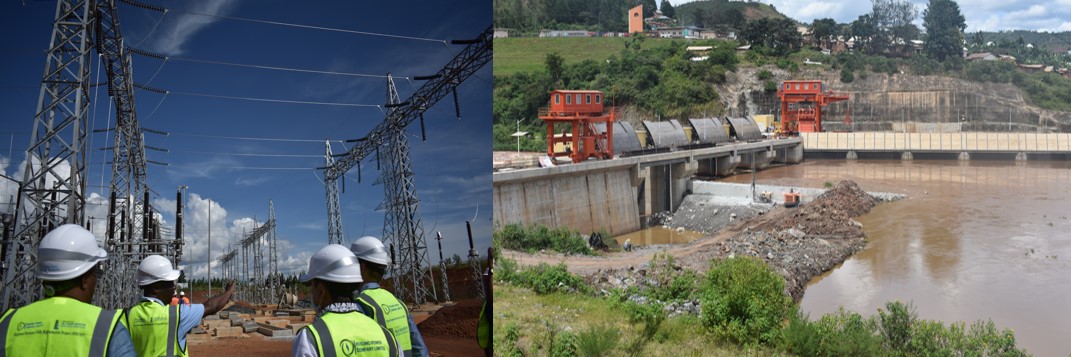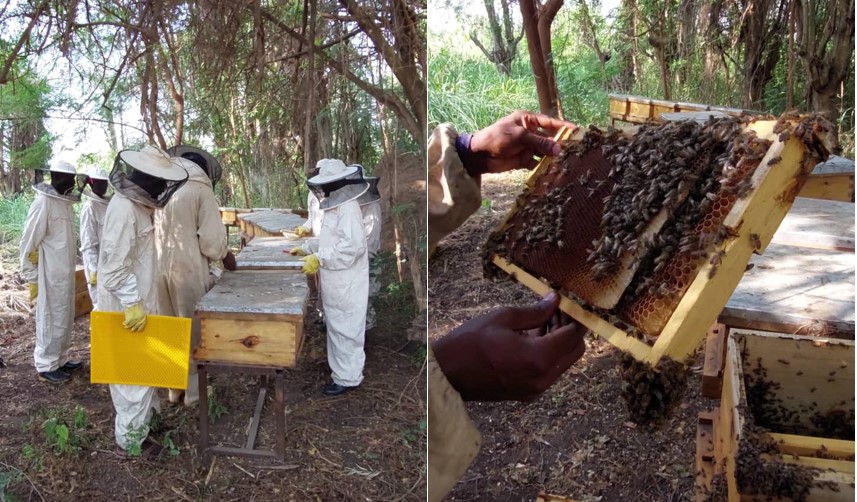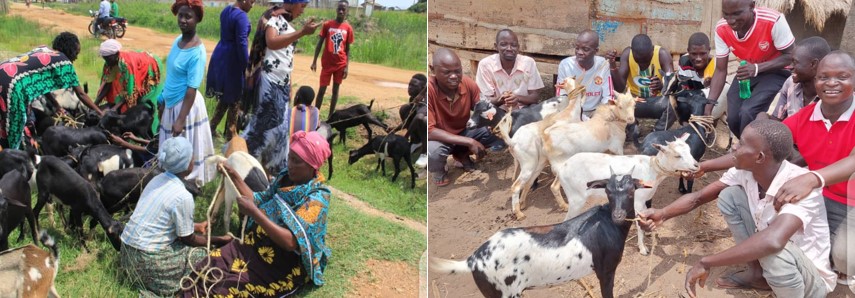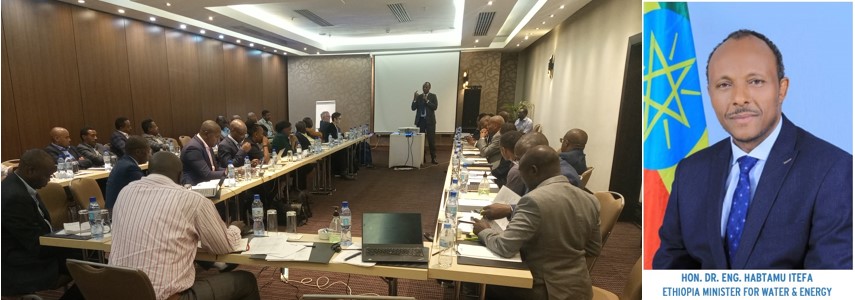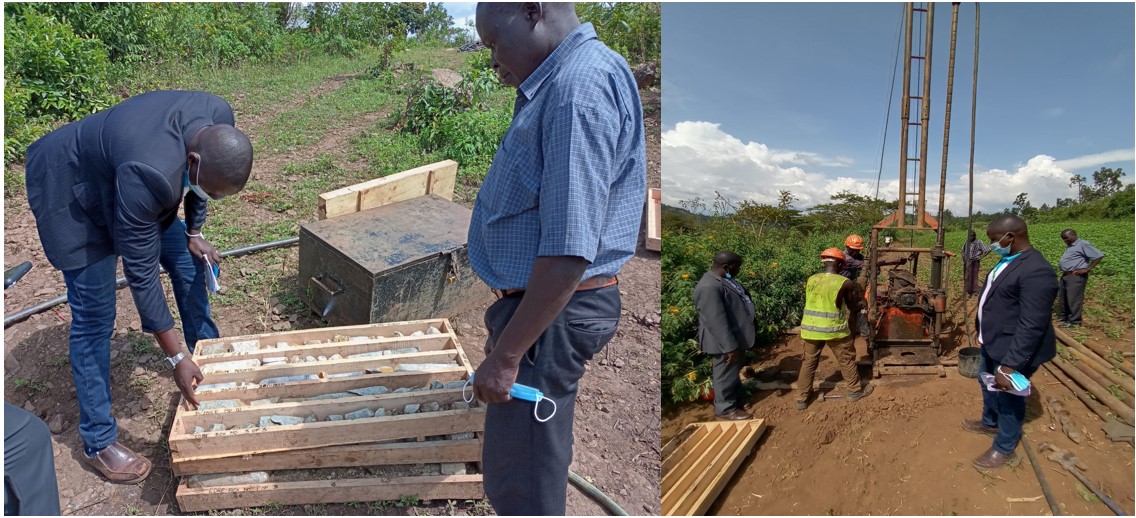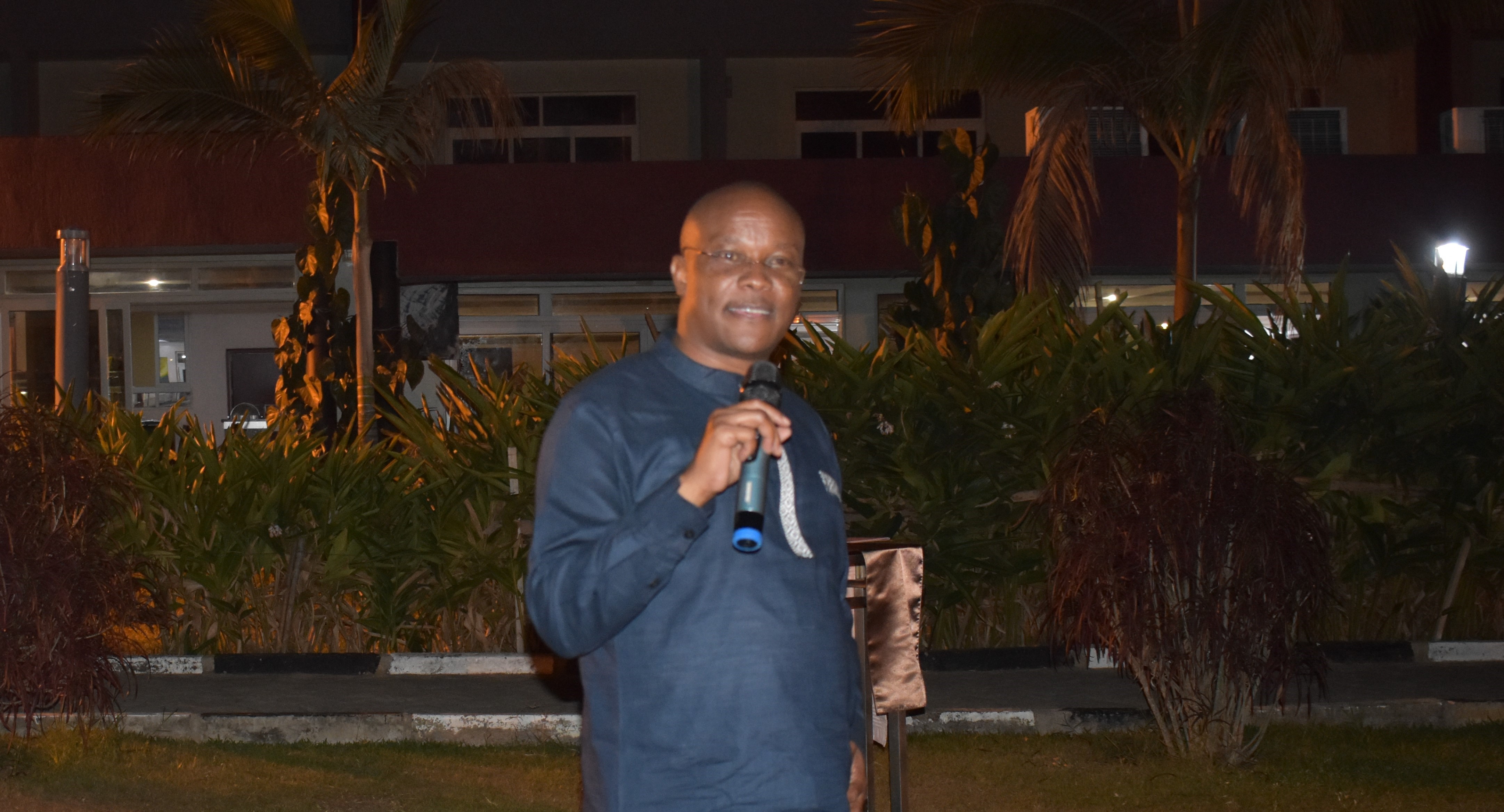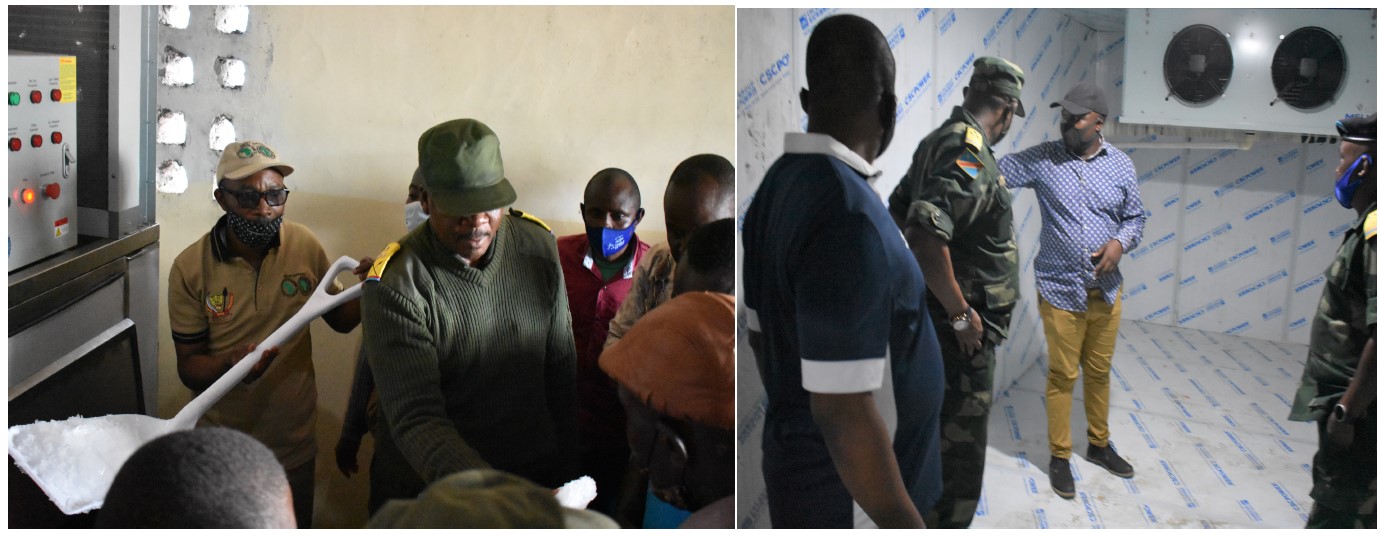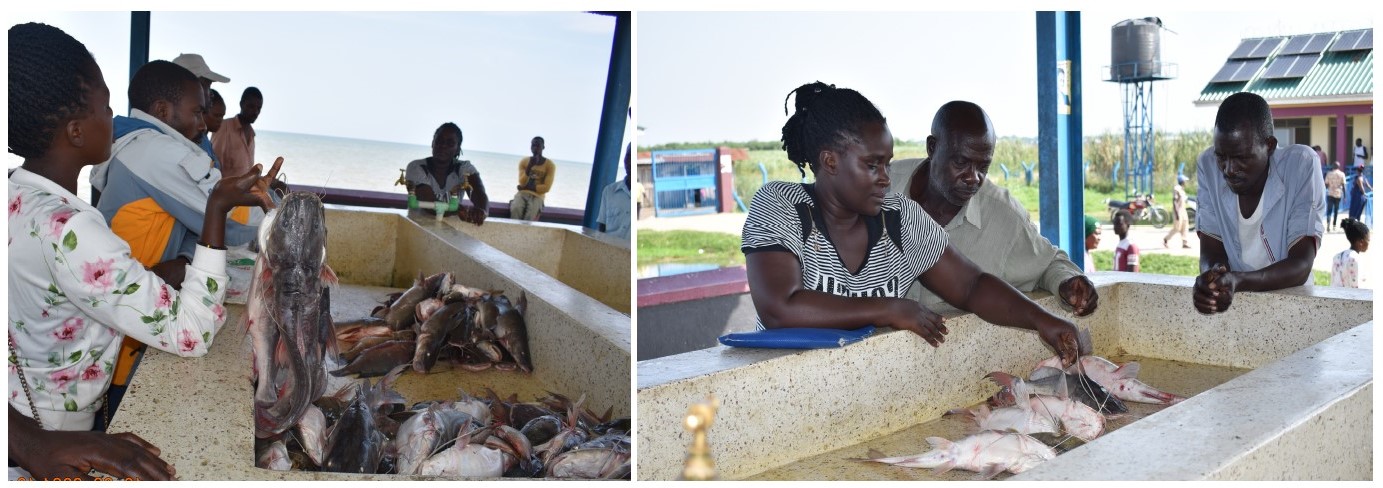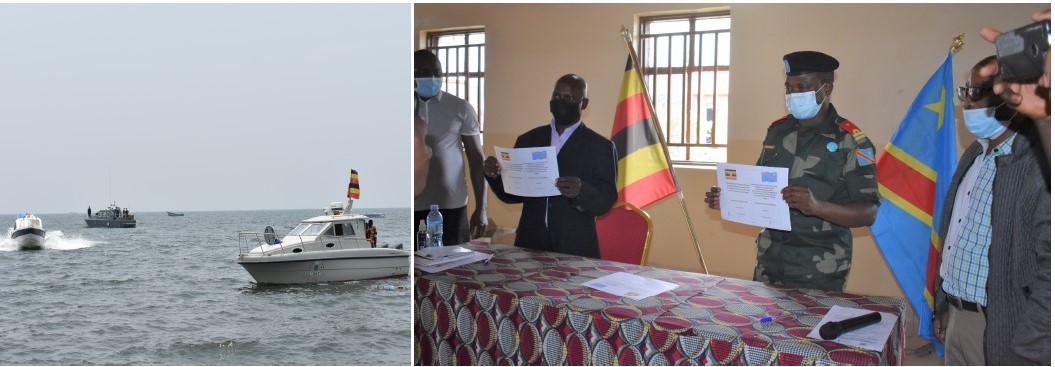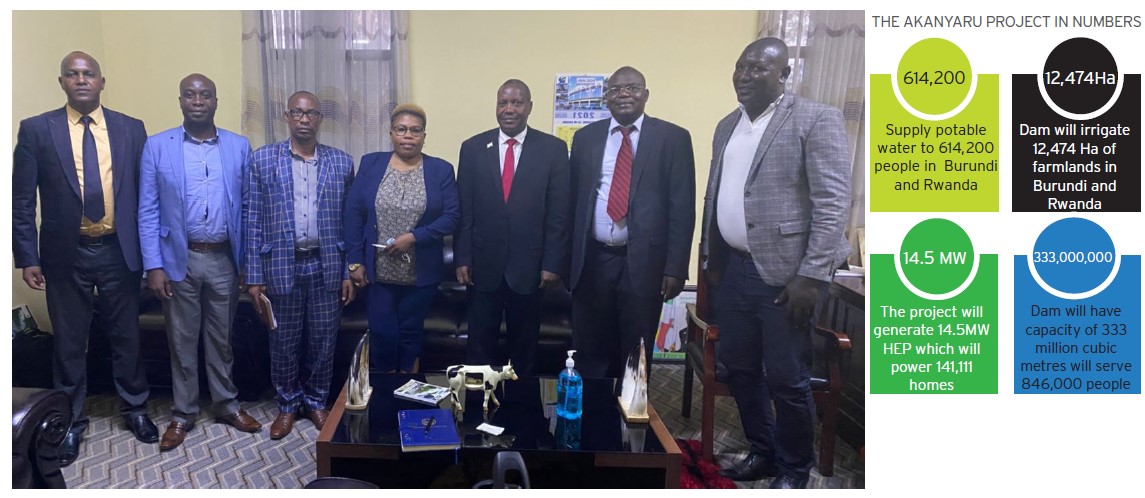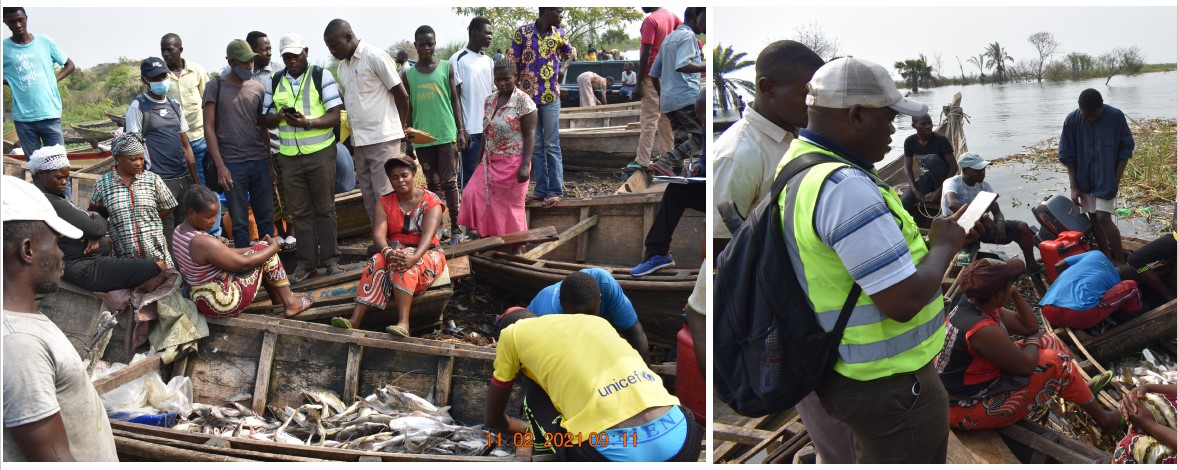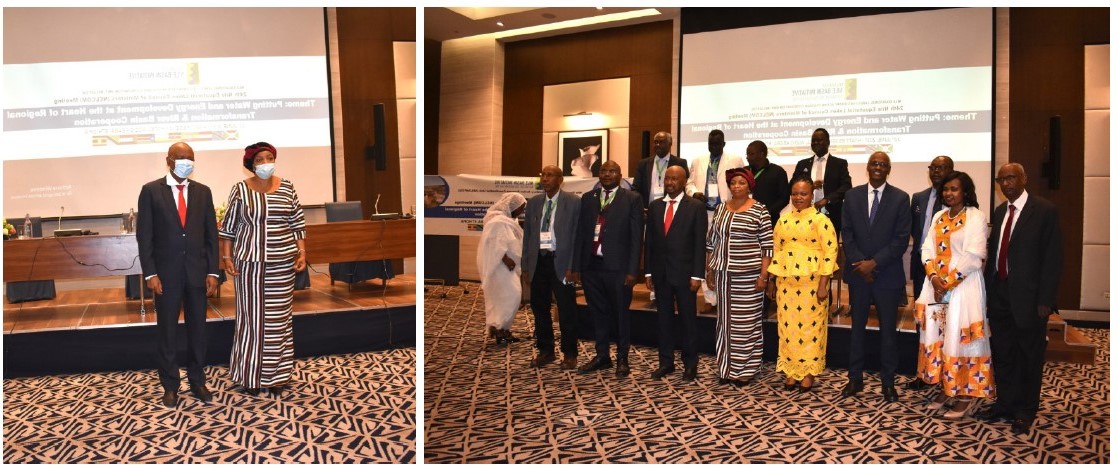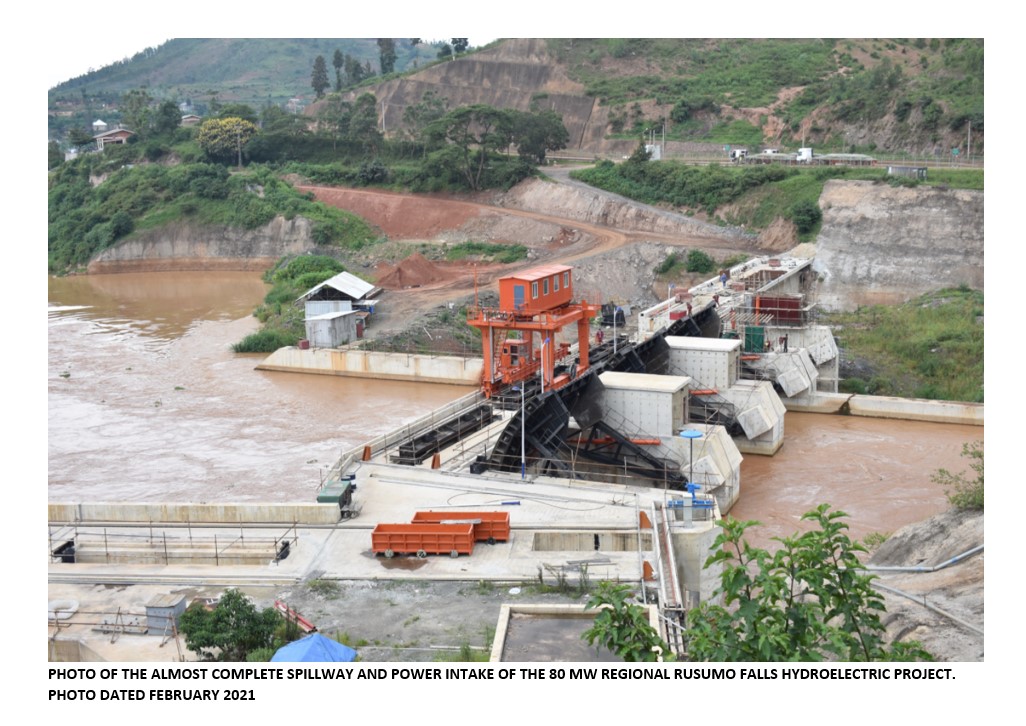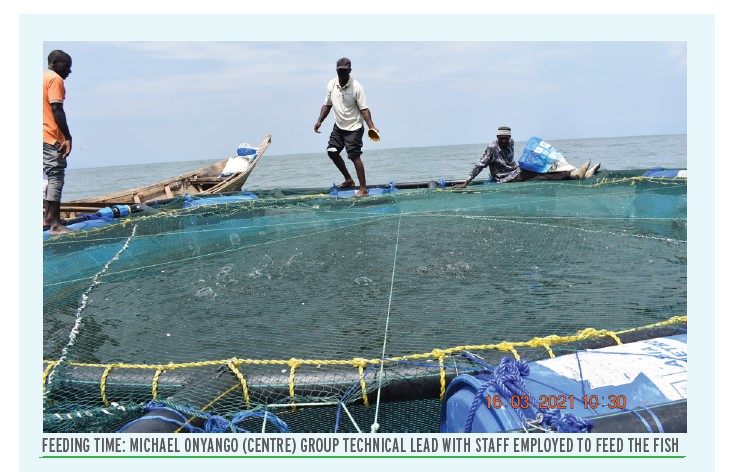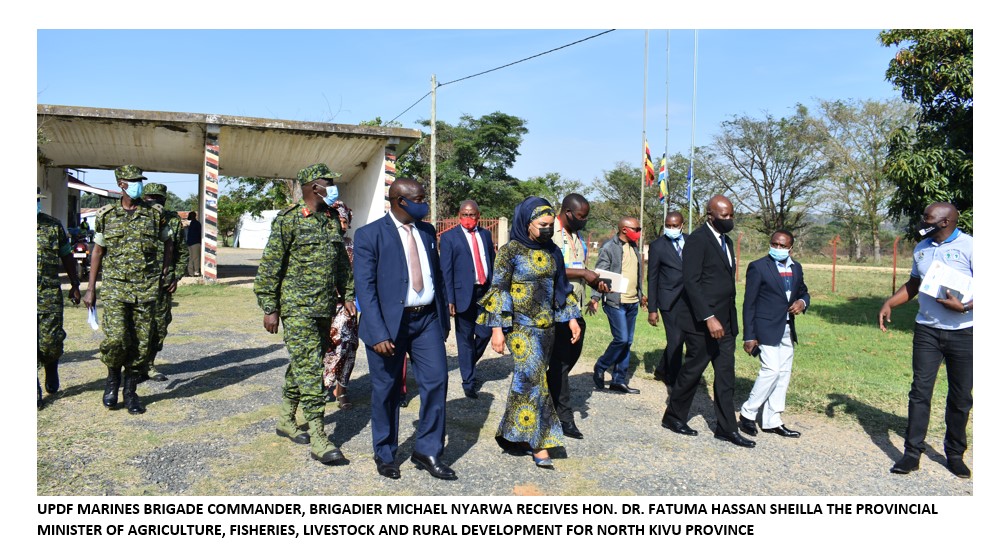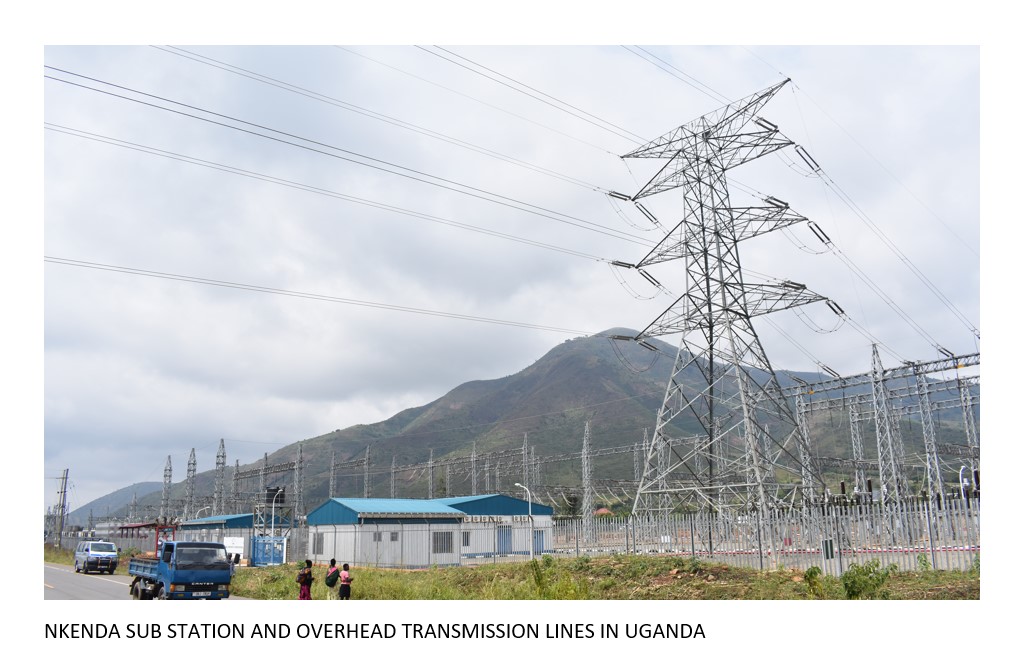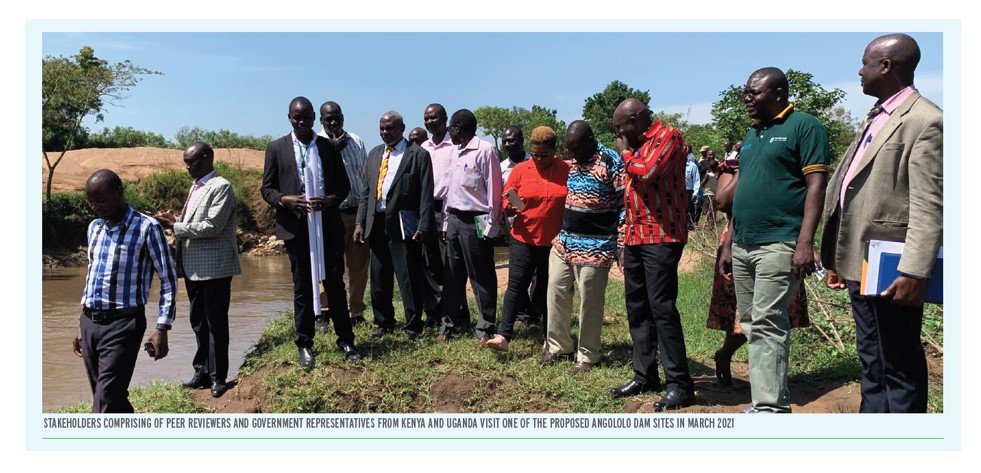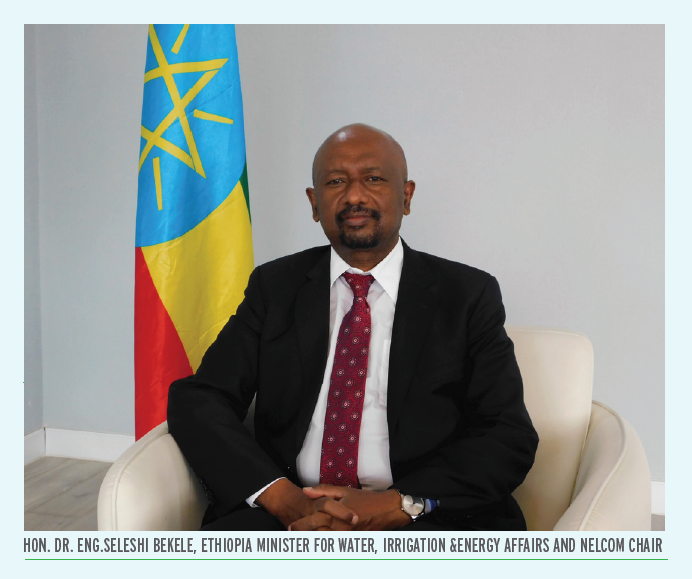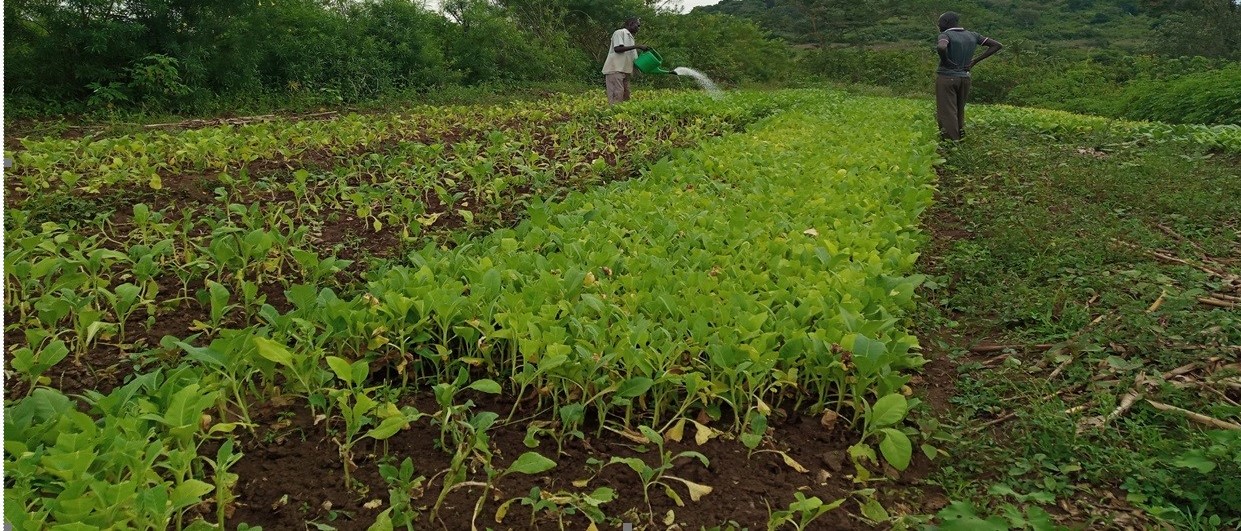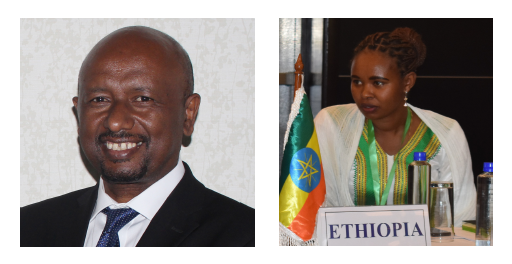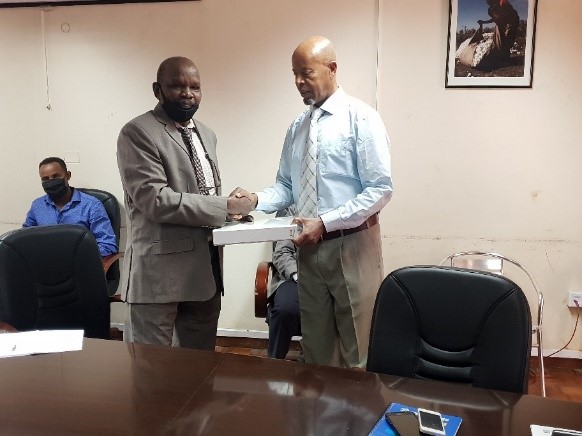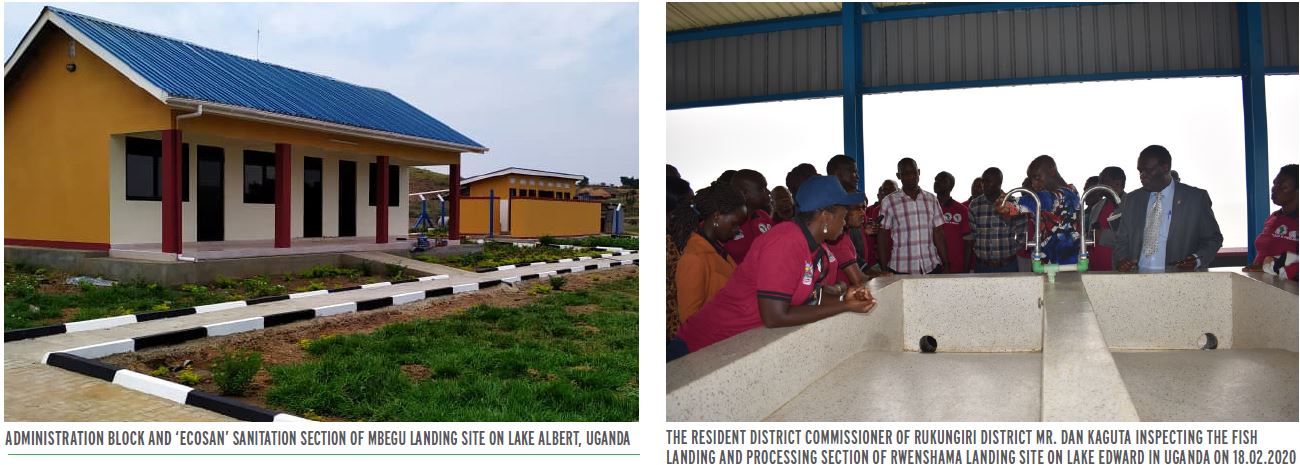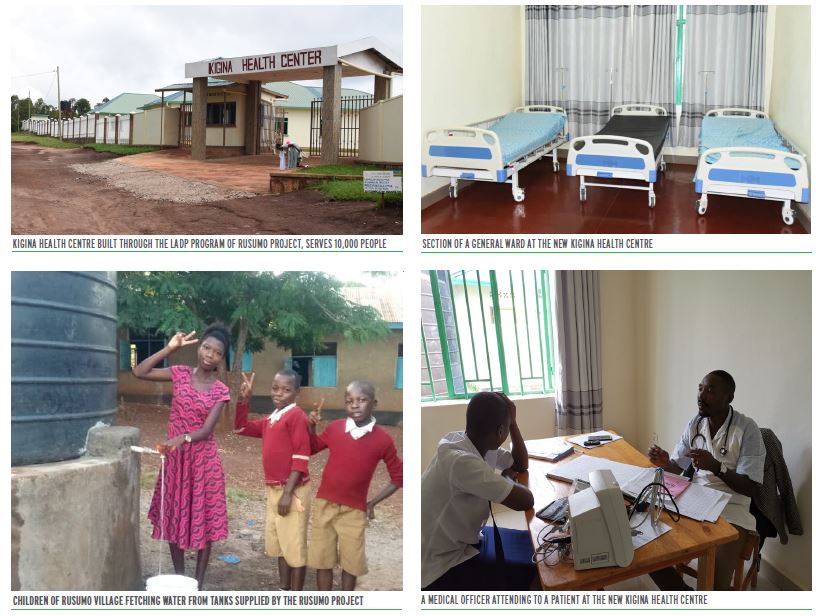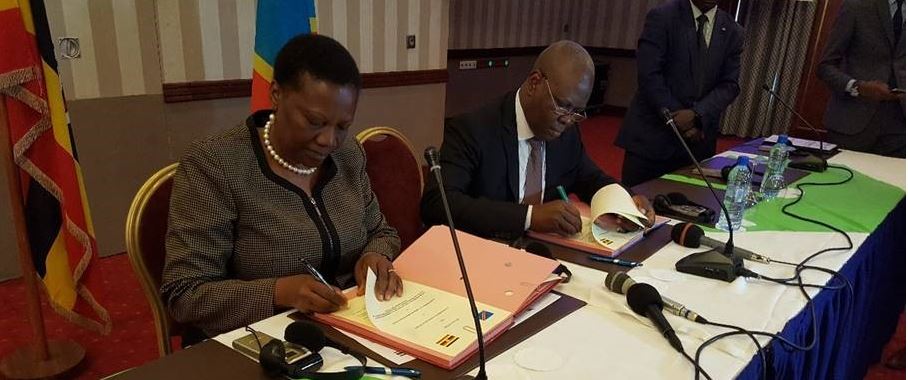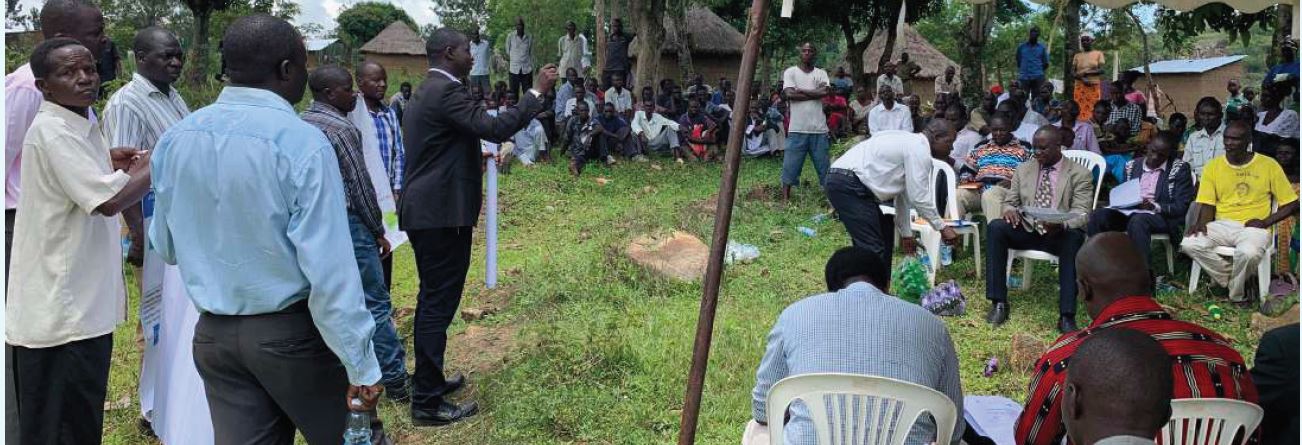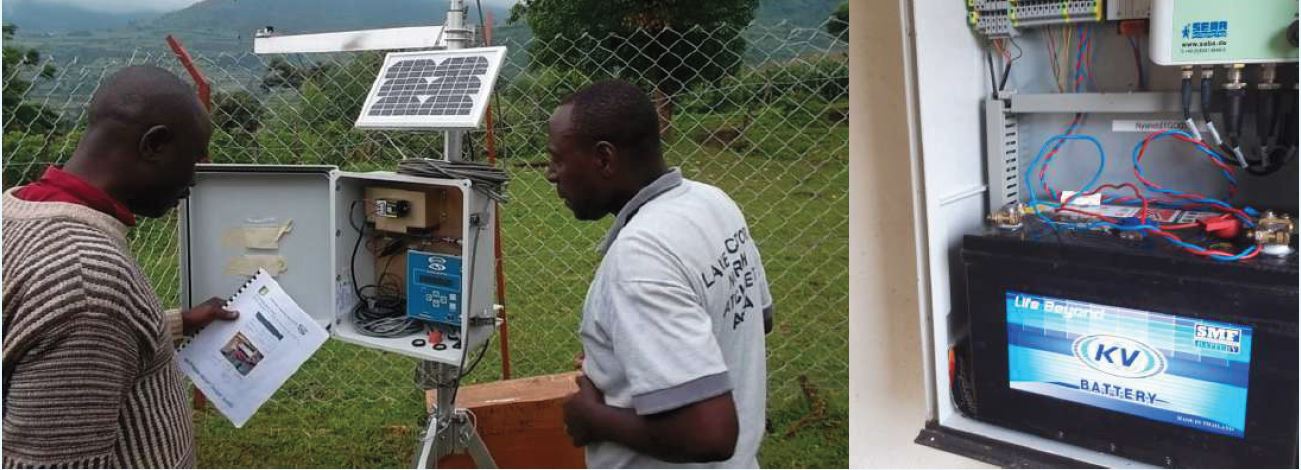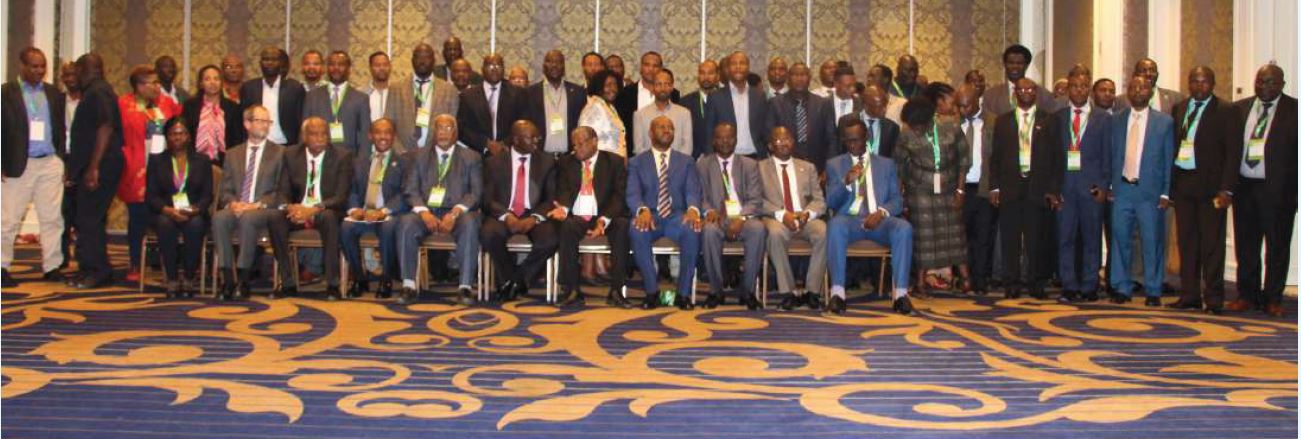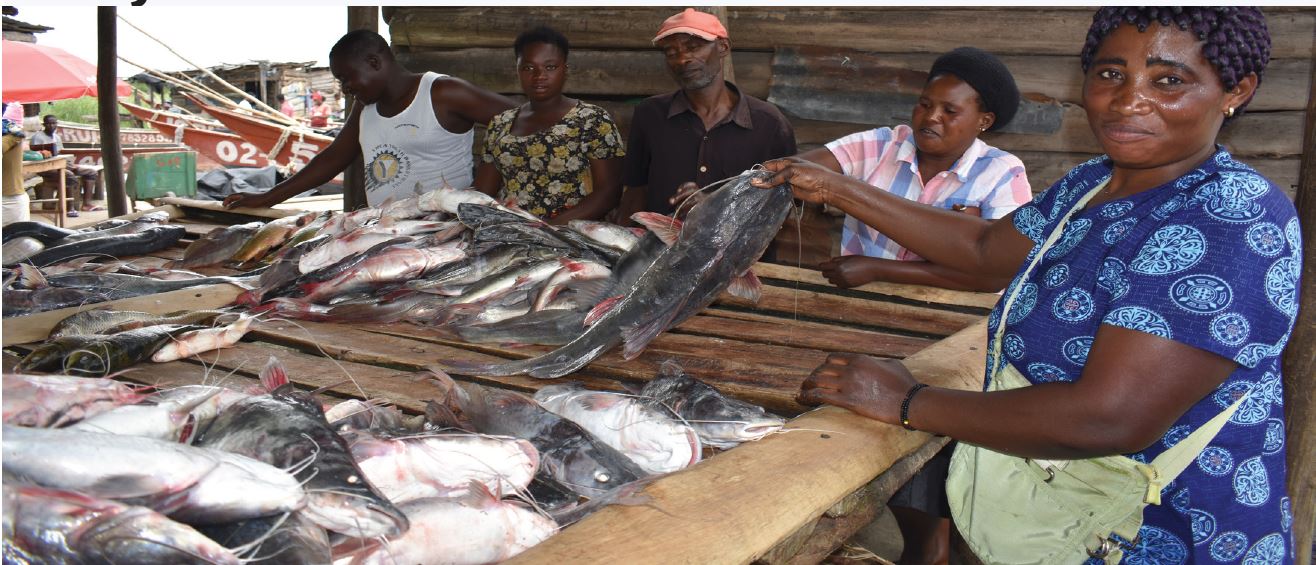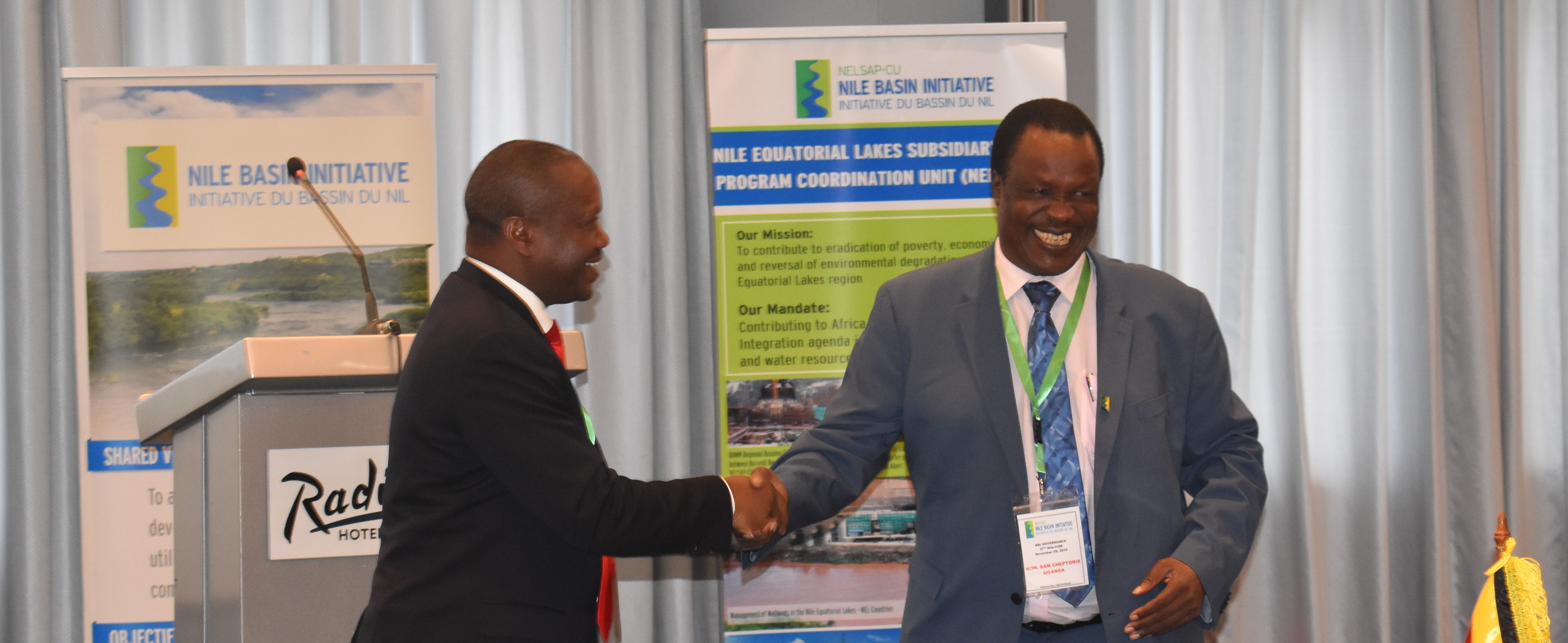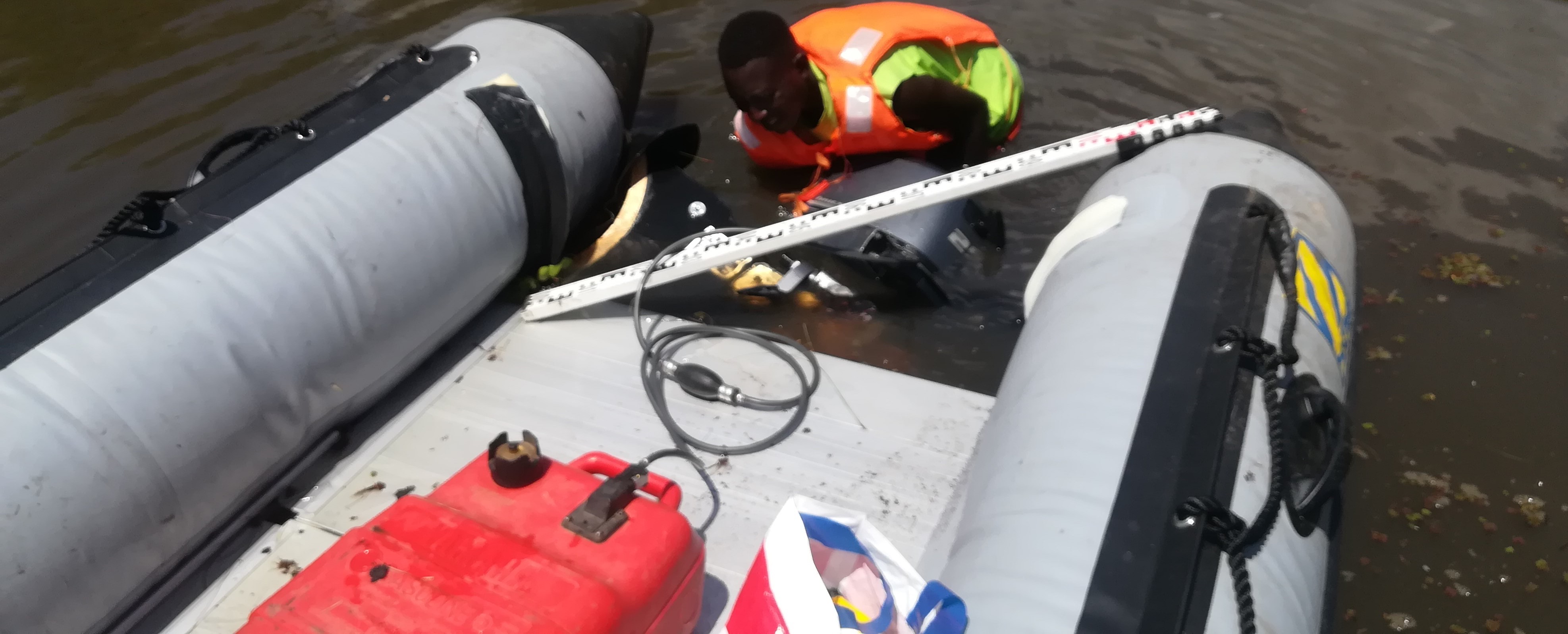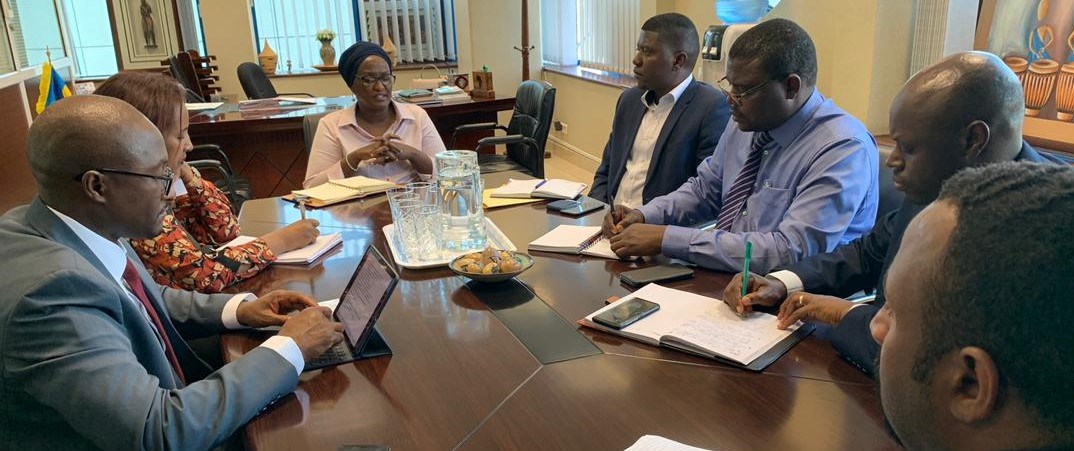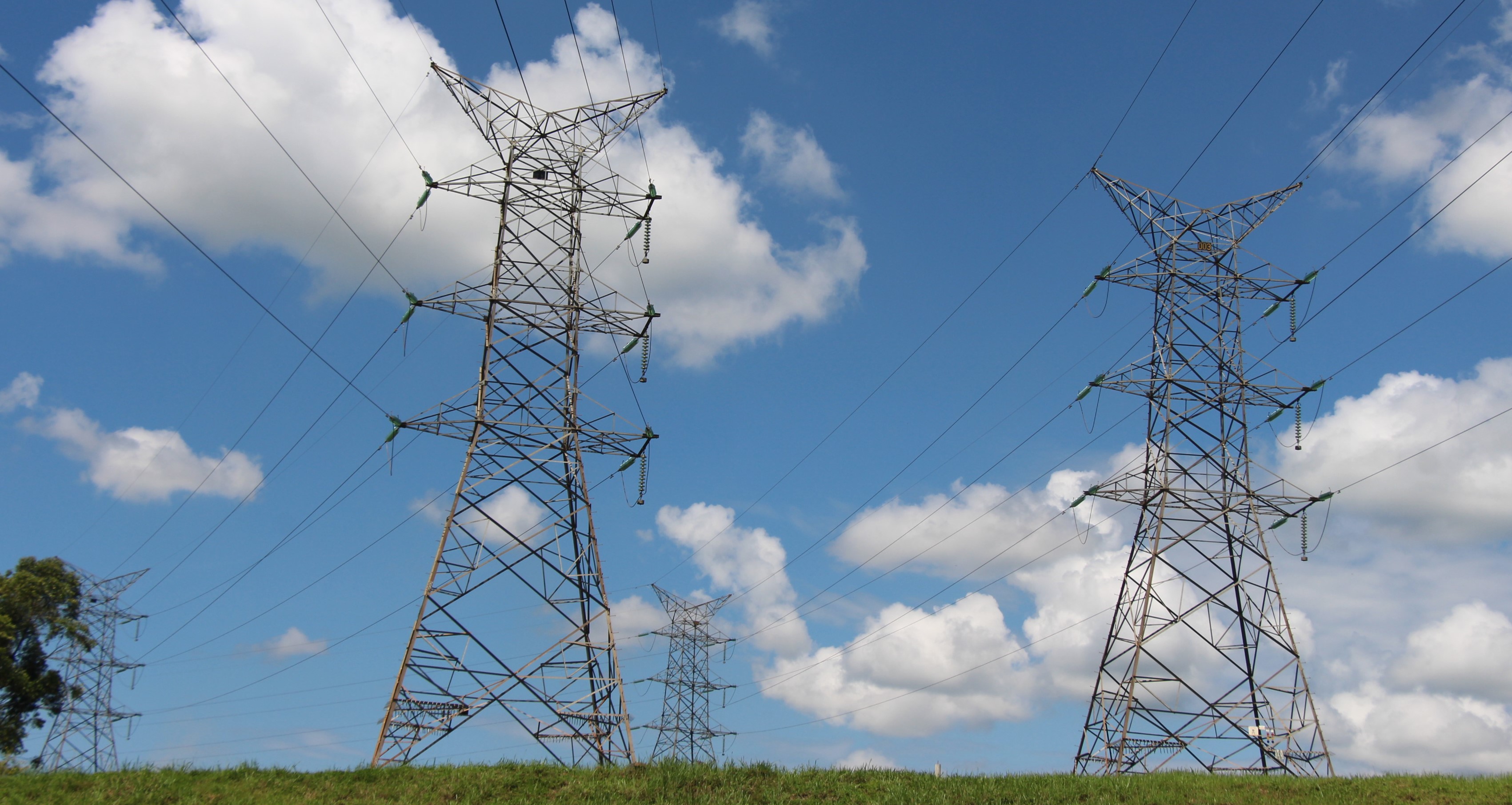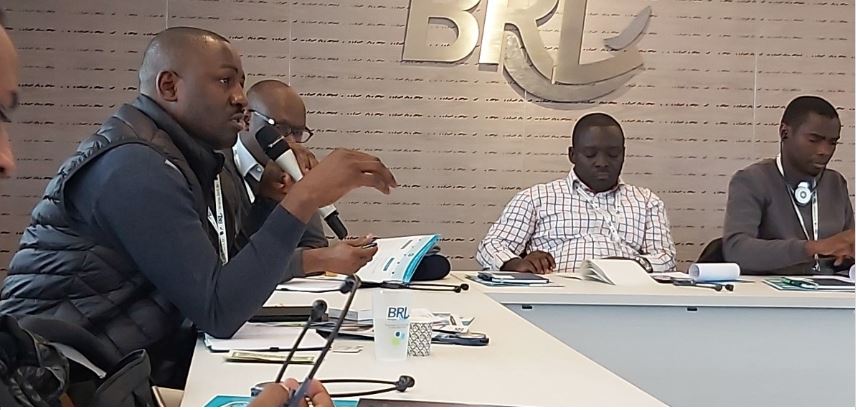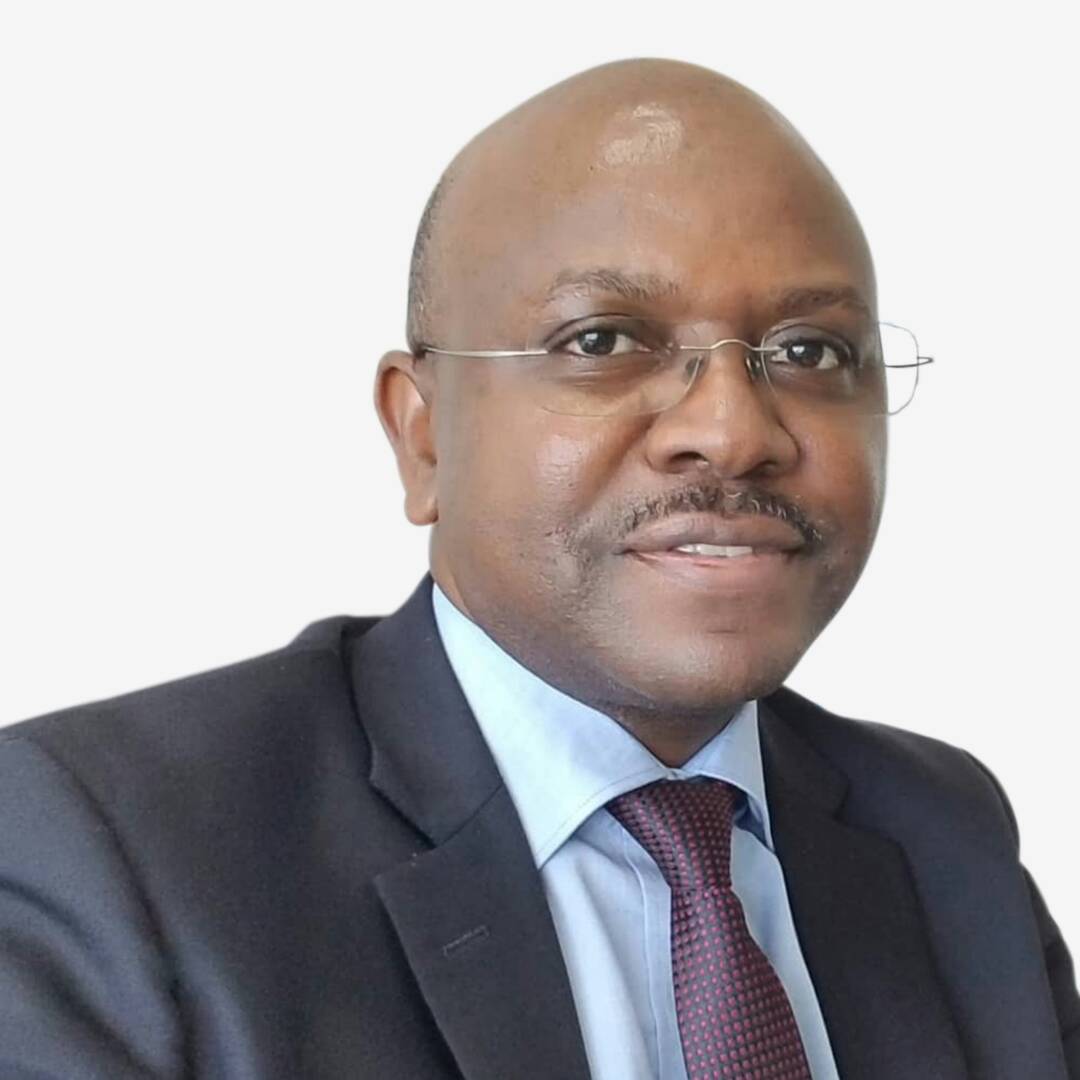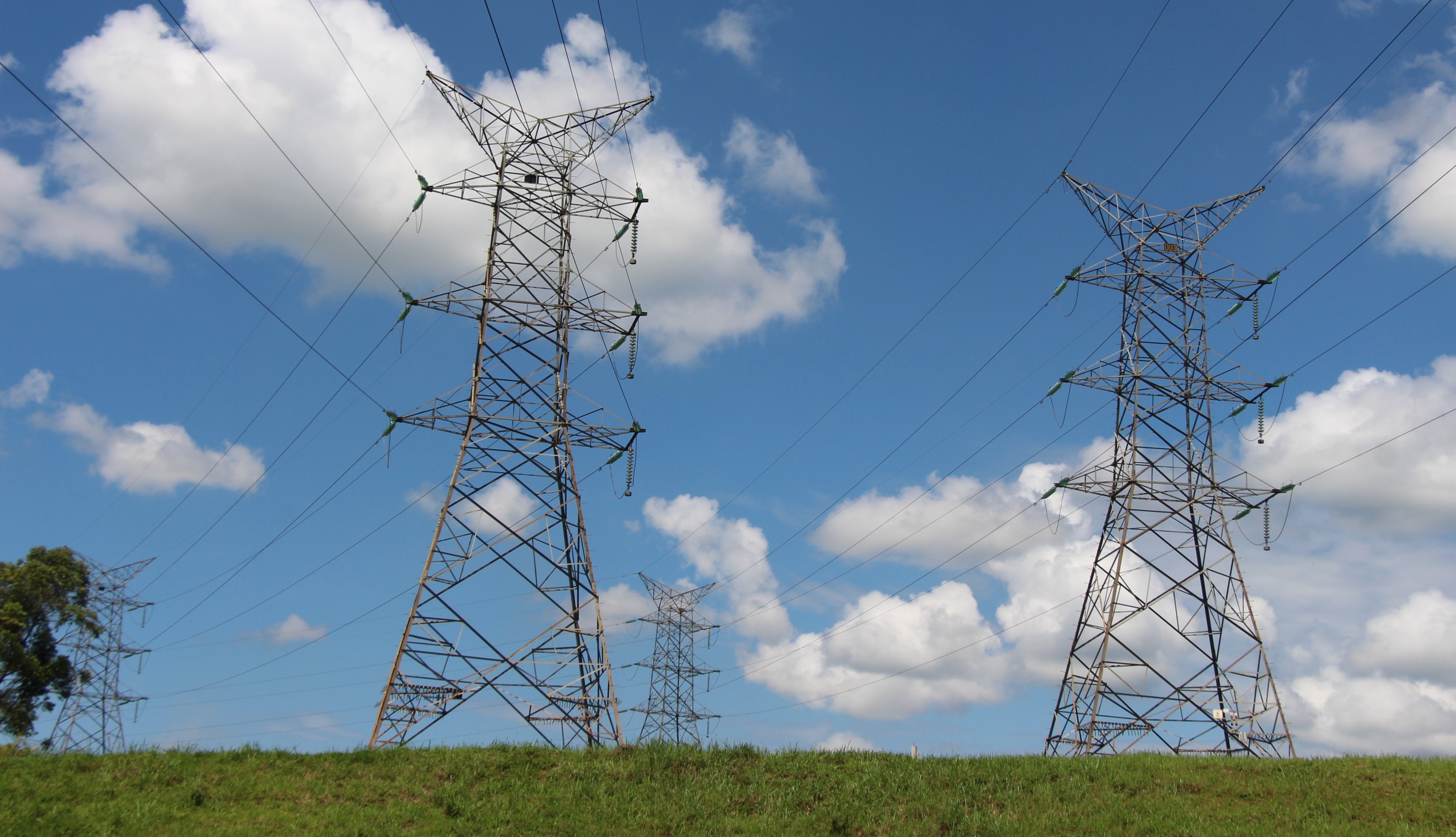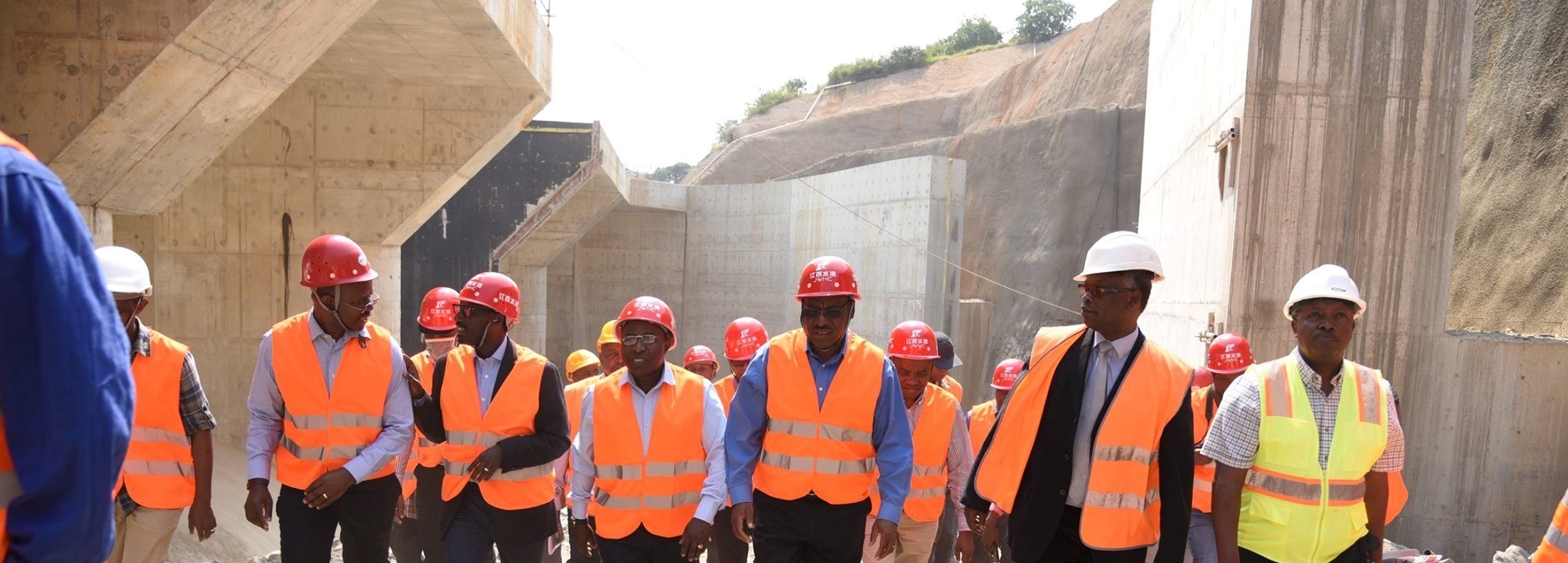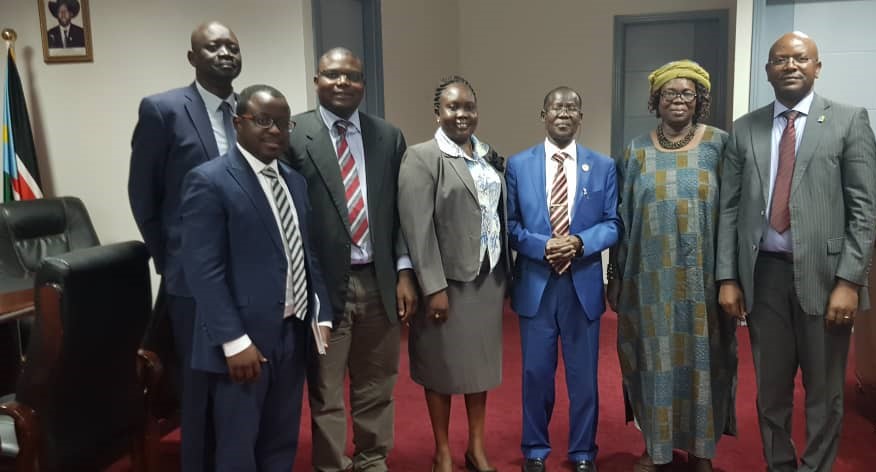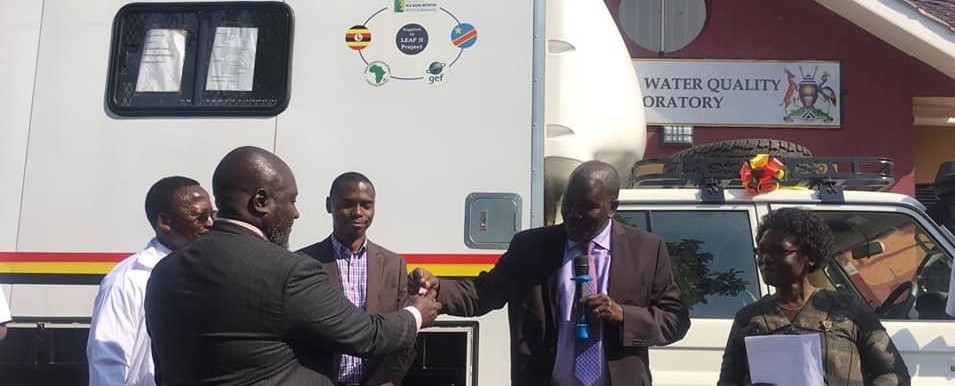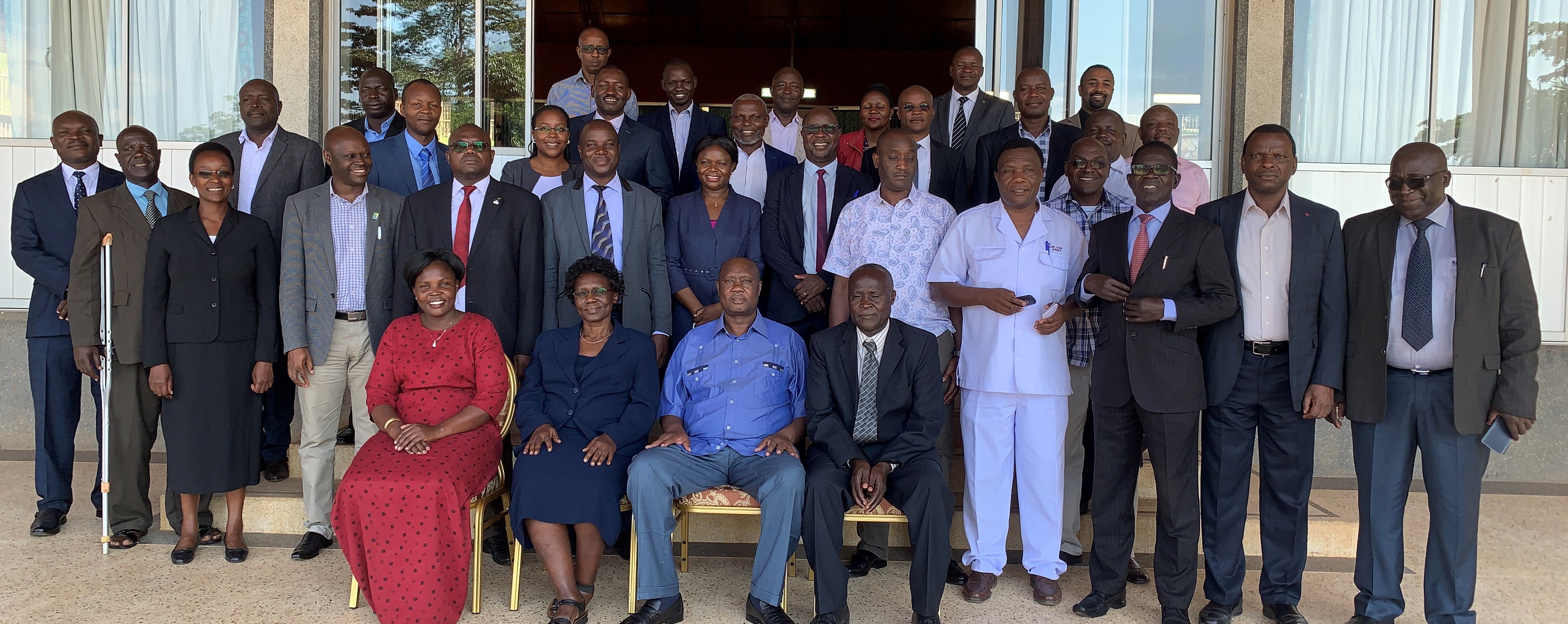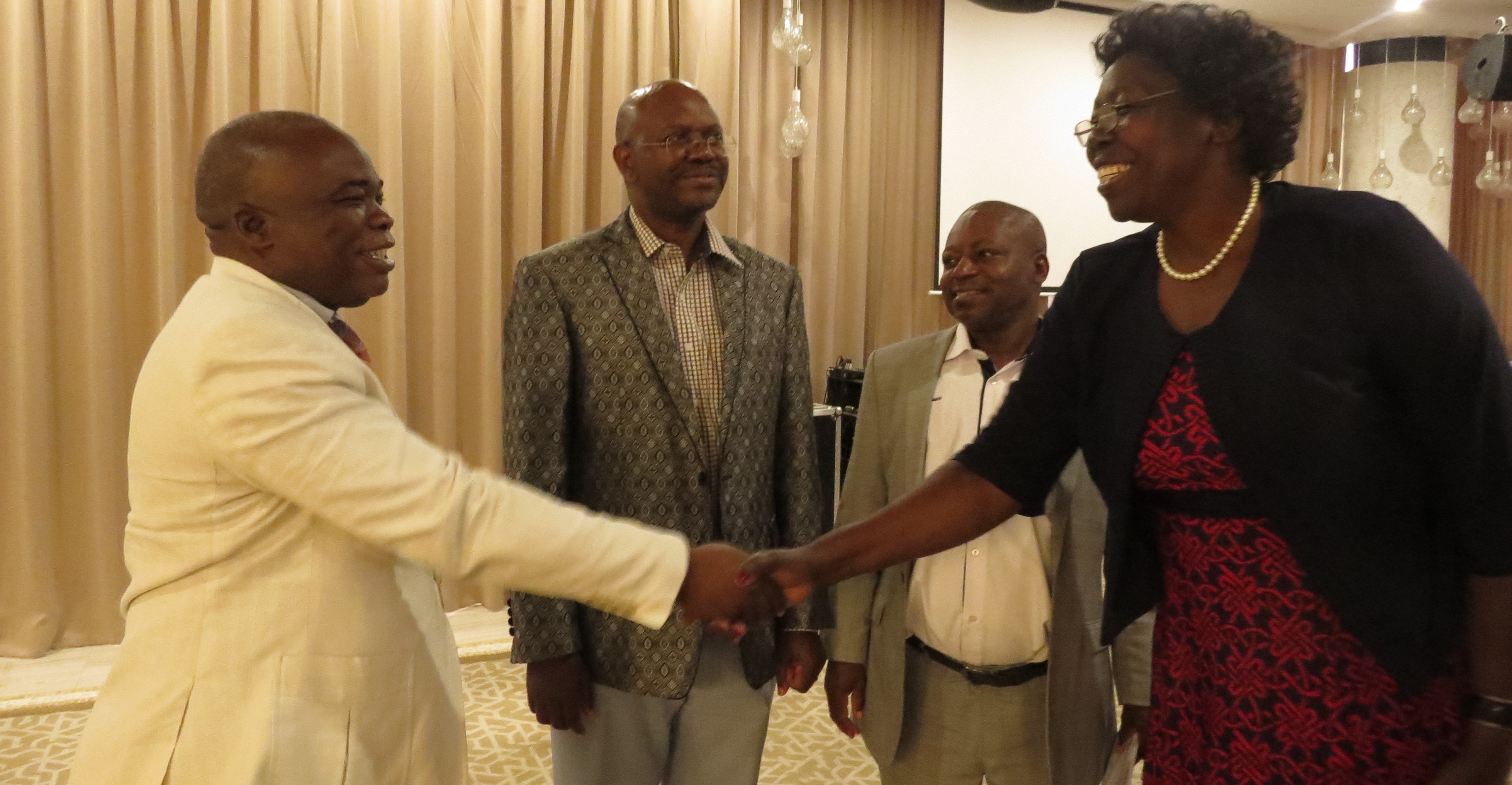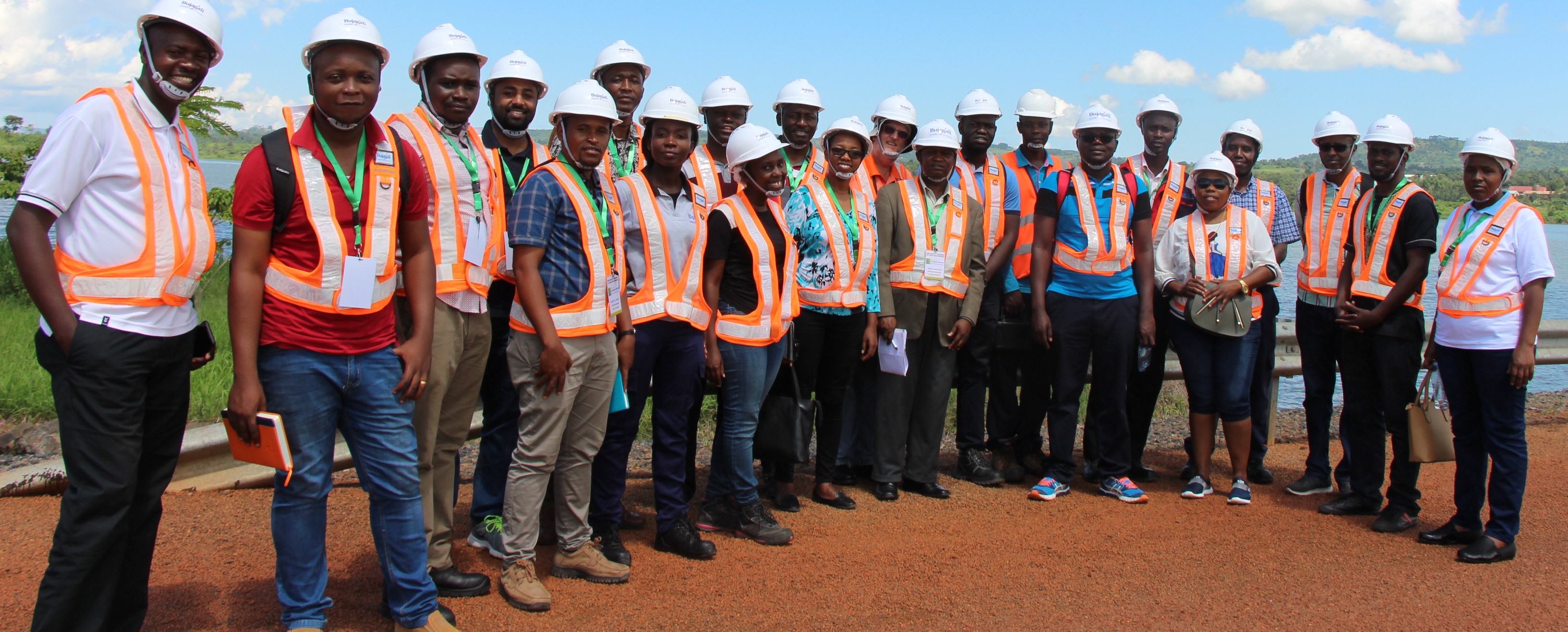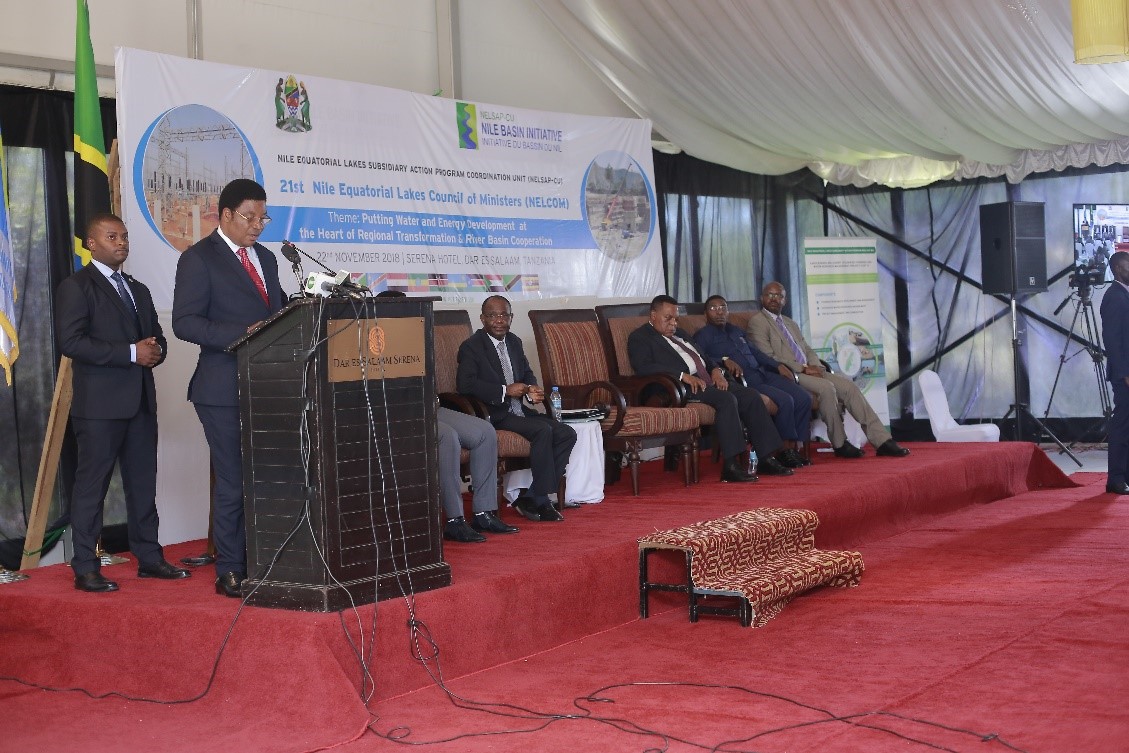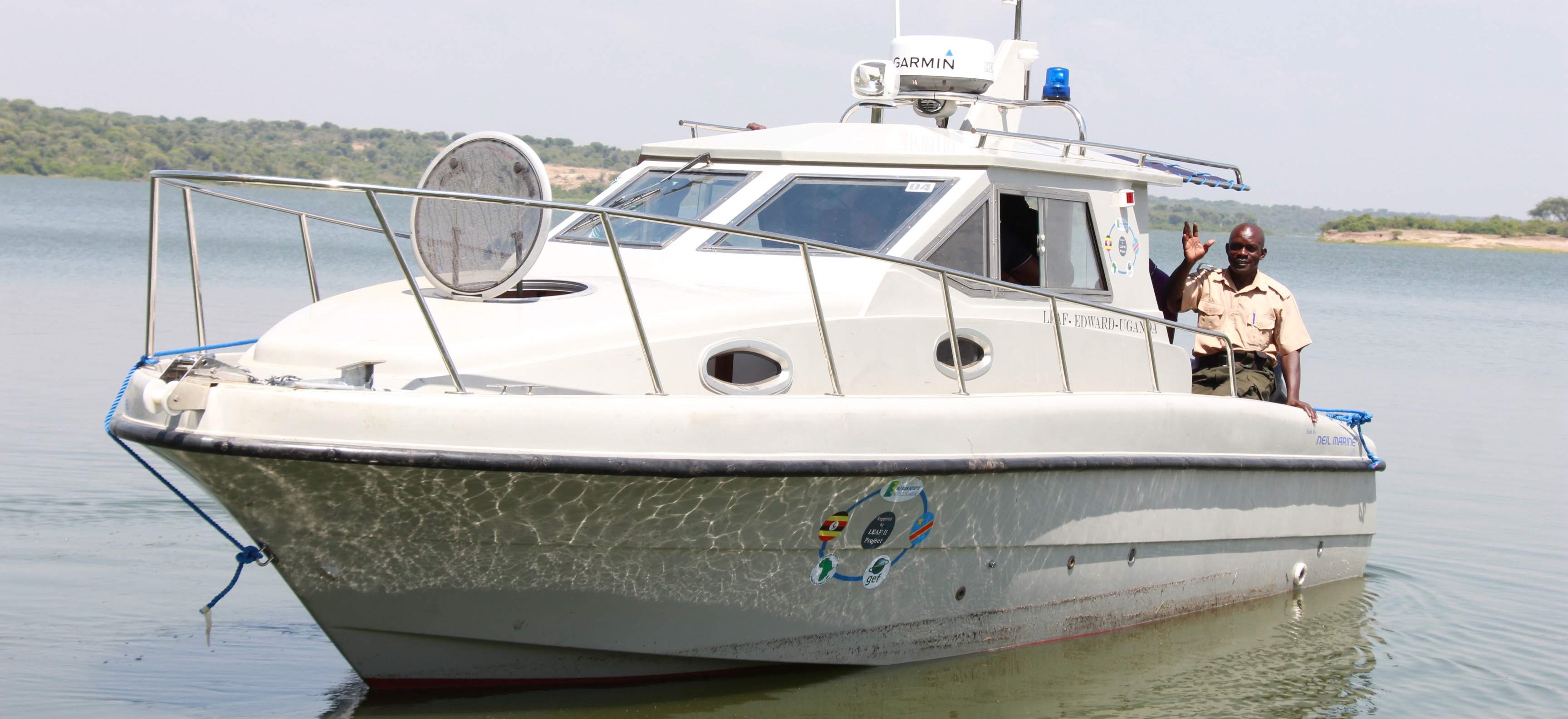End of March 2022, at 8:00am, a team from NELSAP visited Dei Landing site in Pakwach District, on the shared Lake Albert, barely a kilometre from the D.R Congo border. While attention of most people in the area was focused on various fish landing spots waiting for overnight fishers to dock with their catch, a group of women and youth had their attention elsewhere… on their goats. These groups received support from the LEAF II Project to engage in goat rearing as an alternative livelihoods venture to supplement their income from fishing and reduce pressure on the lake.
Wabed Ayika Women Group
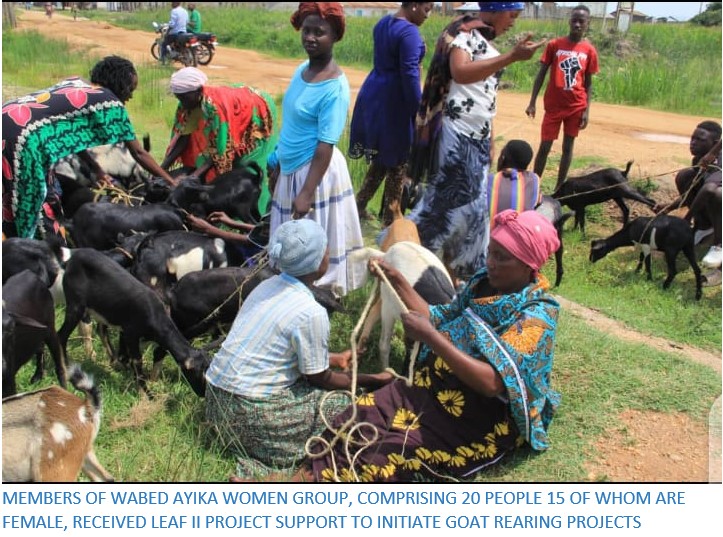
Wabed Ayika
One such group is called Wabed Ayika. The group comprises 20 people, 15 of whom are female. It was formed five years ago (in 2017) initially as savings and self-help group. They contribute 15,000 UGX (USD 4.2) per person per week and use these to provide soft loans to their members to boost their businesses and for emergencies.
Alice Awanga the chairlady of the group explains;
“In this shed we have 24 goats that LEAF II Project gave us. Half of them belong to my group while the rest belong to another group called Wagen Yesu Women Group. Whereas all our members are fishers or engage in fish trade, we chose goat rearing because we felt goatsare easier to raise, they multiply faster and that means we can get returns in a shorter time. Also market for goats is good. A full-grown goat presently fetches between 150,000 UGX (USD 42) to 180,000 UGX (USD 50.5),” she says.
She added that the goats are group owned and regularly, members are assigned, on a rotational basis, the responsibility of looking after them. The group hires a motorcycle once a day at 1,000 UGX (USD 0.28) to fetch feed for them. This money comes from member contributions. Their plan is that in two years’ time, after the goats multiply, they will give each member a goat to rear individually and will also sell some goats and use the money to sort out their most pressing needs, especially paying school fees for their children and building residential houses.
Apart from fishing and goat rearing, the women are engaging in improved cassava crop production. With support from a different agency, they recently received 10 one-hundred kilogram size sacks of cassava cuttings to plant, since cassava does well in the area despite it being dry.
Angal Youth Group
A few hundred metres away, another group called Angal Youth Group, composed of young people, also received similar help from the LEAF II Project to rear goats. Their chairperson Isingoma Bangamoyo explains;
“We are group of 25 young people, 21 of us are fishers while four are shopkeepers. Some time, back we used to do a lot of fishing, however because the governments of both DRC and Uganda have been enforcing strict fishing regulations on Lake Albert, it became difficult since we don’t have approved fishing gears, so we decided to diversify from fishing. We were thus very happy when the LEAF II Project gave us seven improved goats to rear. Six of them are female (does) and one is male (a buck).”
Isingoma, the group chair explained that LEAF II trained them on how to tend to the goats and the type of feed and medication to regularly administer to them. He says the group has employed one of their members as a herder and they pay him 25,000 UGX (USD 7) a month. The goats graze in open fields half the day while the herder also cuts and brings feed to them.
“After our goats have multiplied, we plan to sell some and buy a big engine boat to make our fishing more profitable, however on the side we will continue to rear goats and engage in other income generating ventures,” Isingoma says.
The group previously raised funds and bought 147 plastic chairs and a tent that they hire out to people holding meetings. They also bought a new motorcycle for transport that people can hire, so goat rearing will be their fourth source of income.
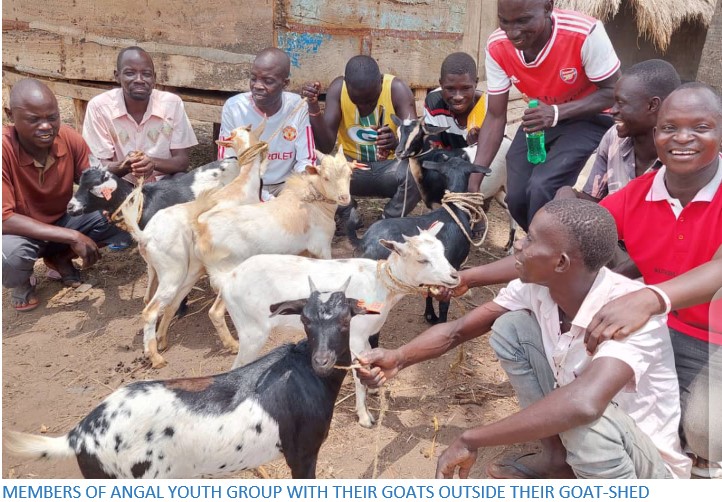 The group says their main challenge is security of their goats. They fear that because the goat shed is not fenced, someone might steal them. They presently borrow a solar panel and battery from one of their members to light the goat shed and its compound to deter thieves. With time however, they hope to fence the shed with chain-link wires.
The group says their main challenge is security of their goats. They fear that because the goat shed is not fenced, someone might steal them. They presently borrow a solar panel and battery from one of their members to light the goat shed and its compound to deter thieves. With time however, they hope to fence the shed with chain-link wires.
The Multinational Lakes Edward and Albert Integrated Fisheries and Water Resources (LEAF II) is a project of NELSAP/NBI that is funded by the African Development Bank (AfDB) and the Global Environment Facility (GEF) and is implemented in collaboration with the Governments of the D.R Congo and Uganda. LEAF II projected ended on 31st March 2022.

